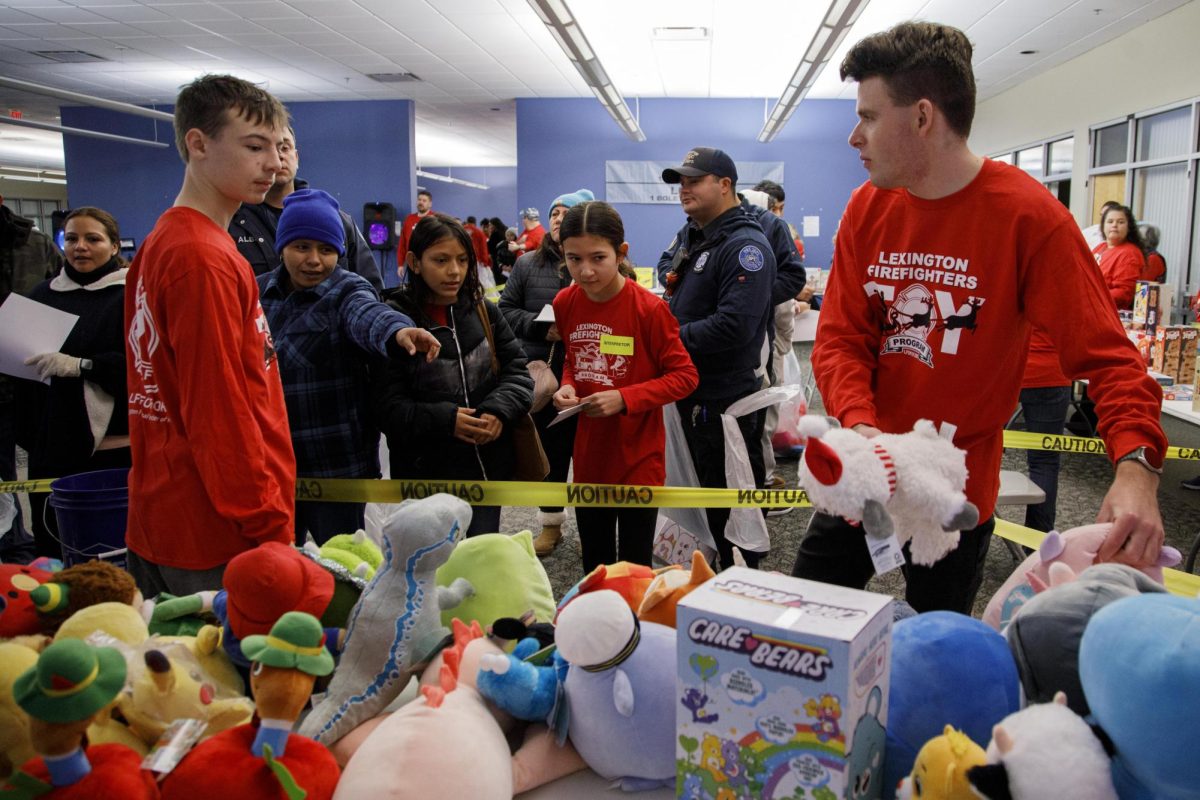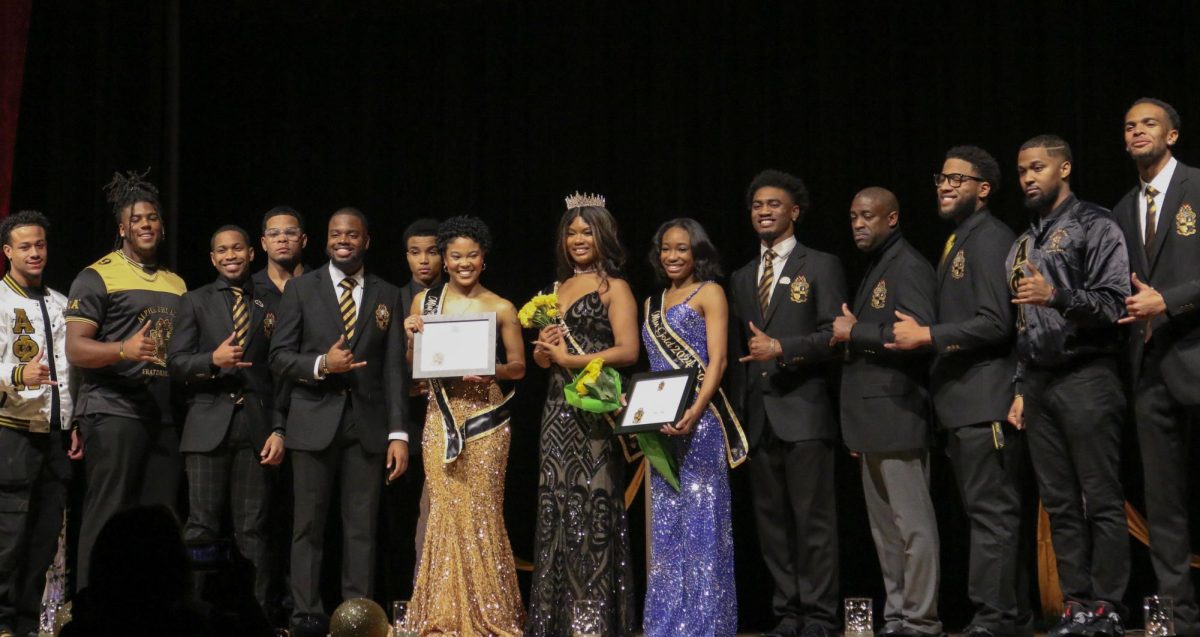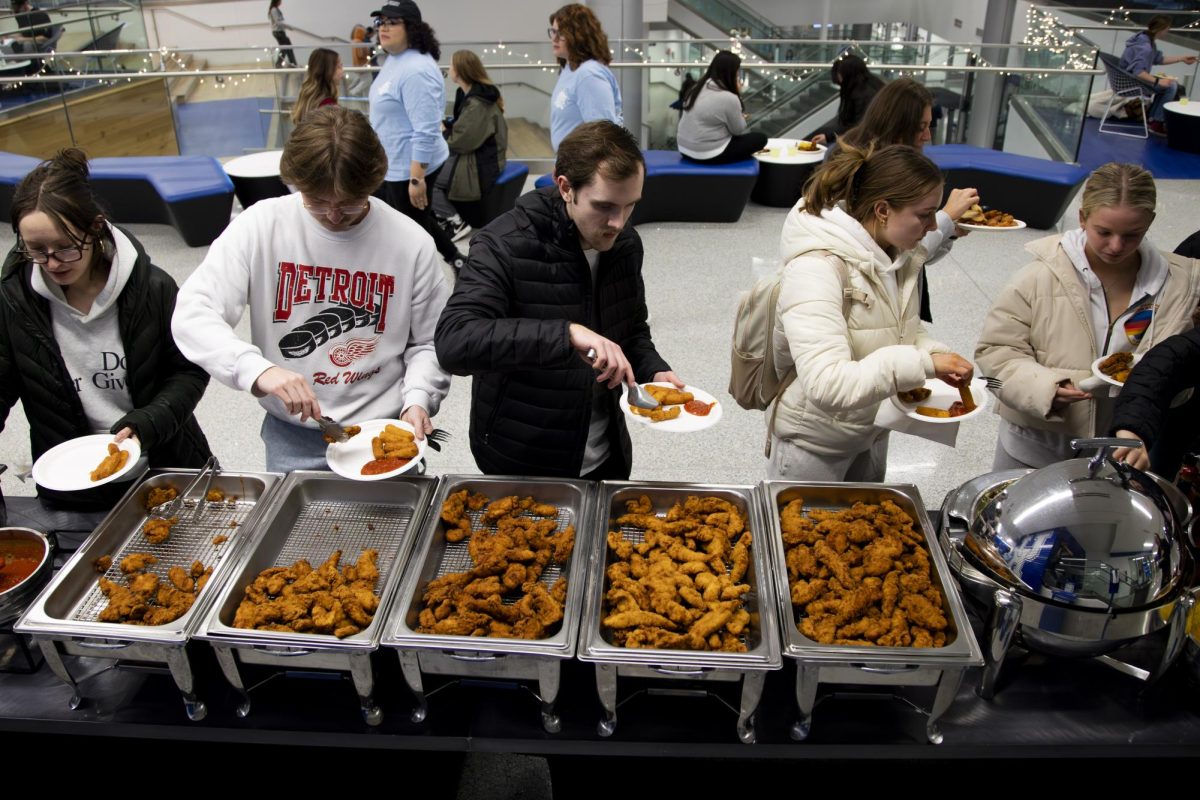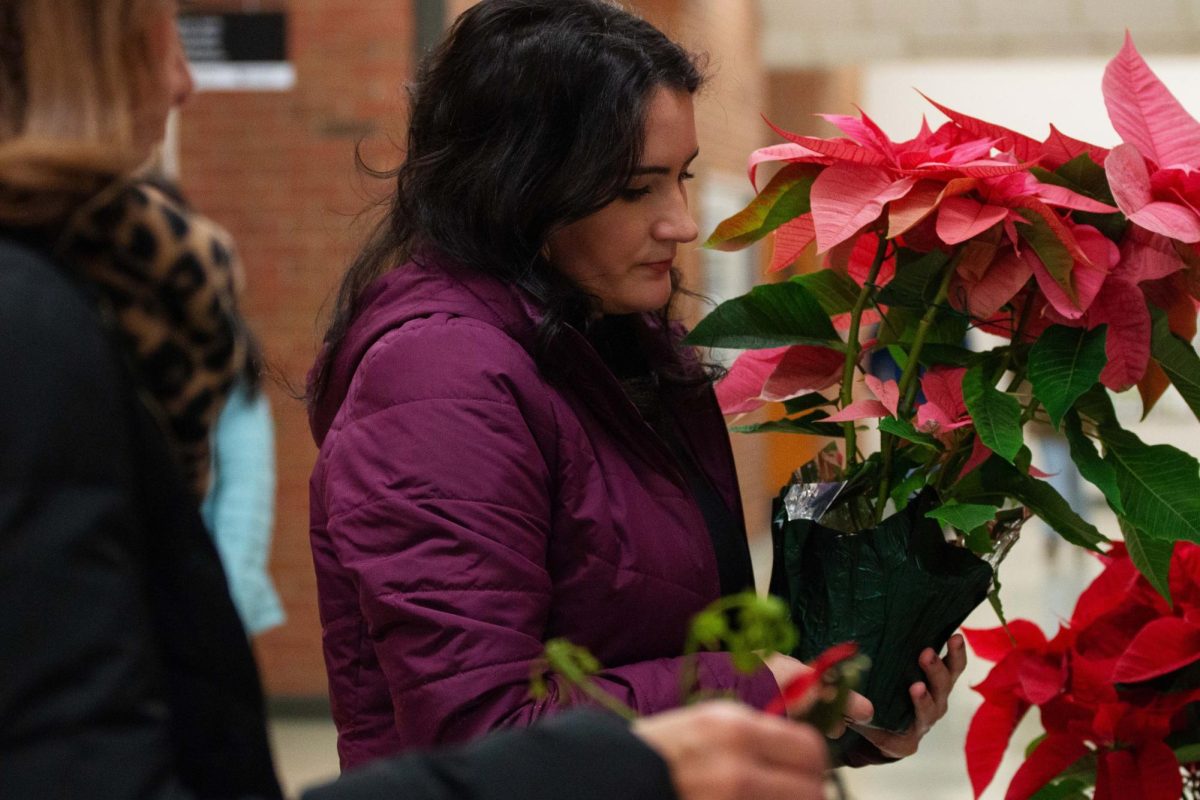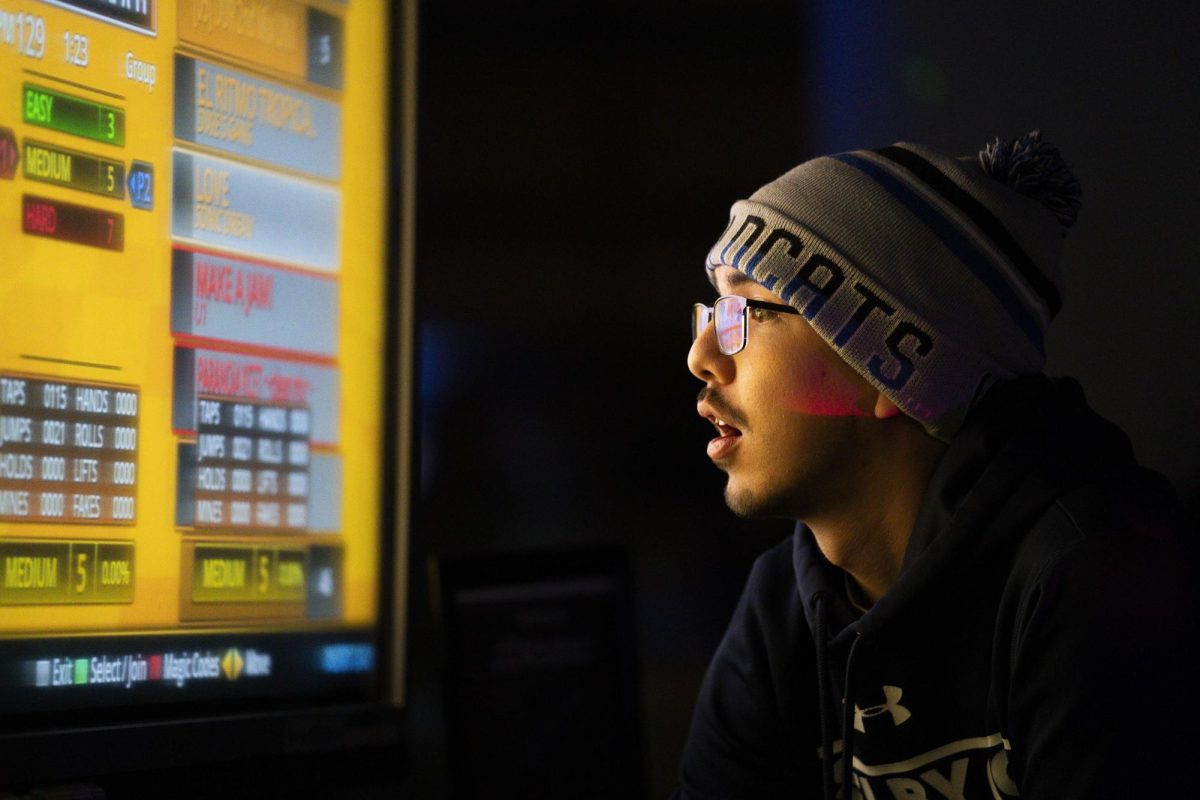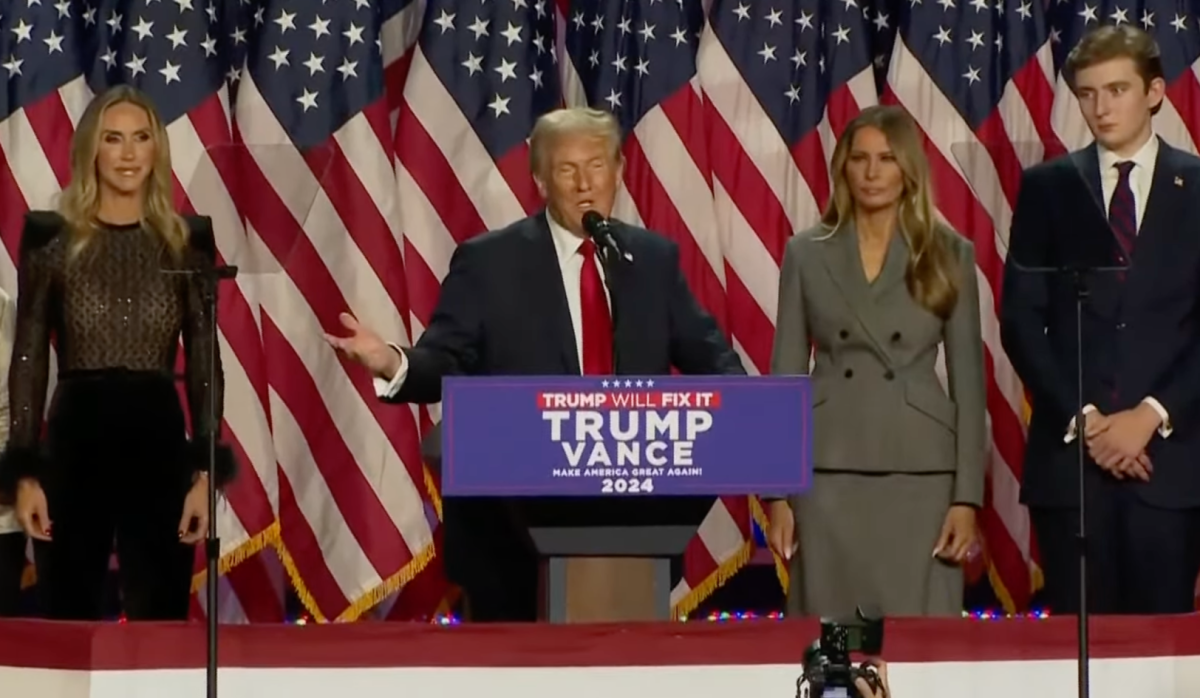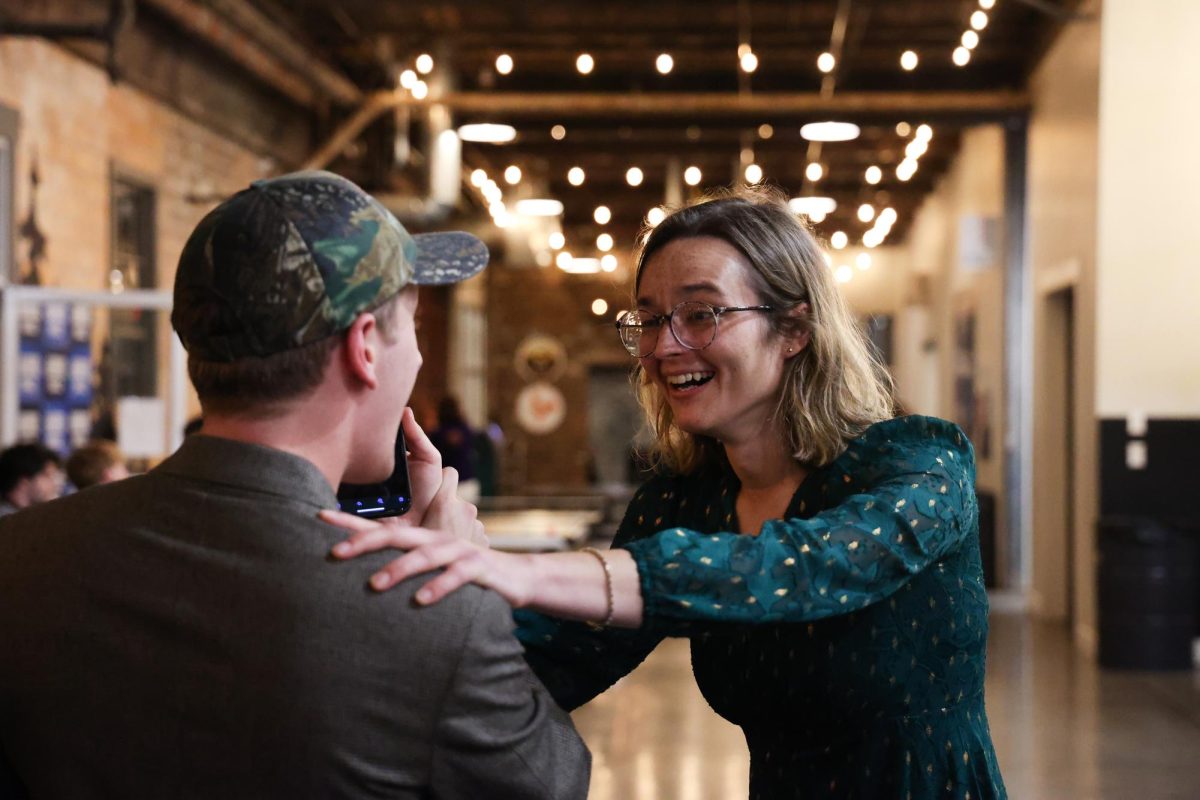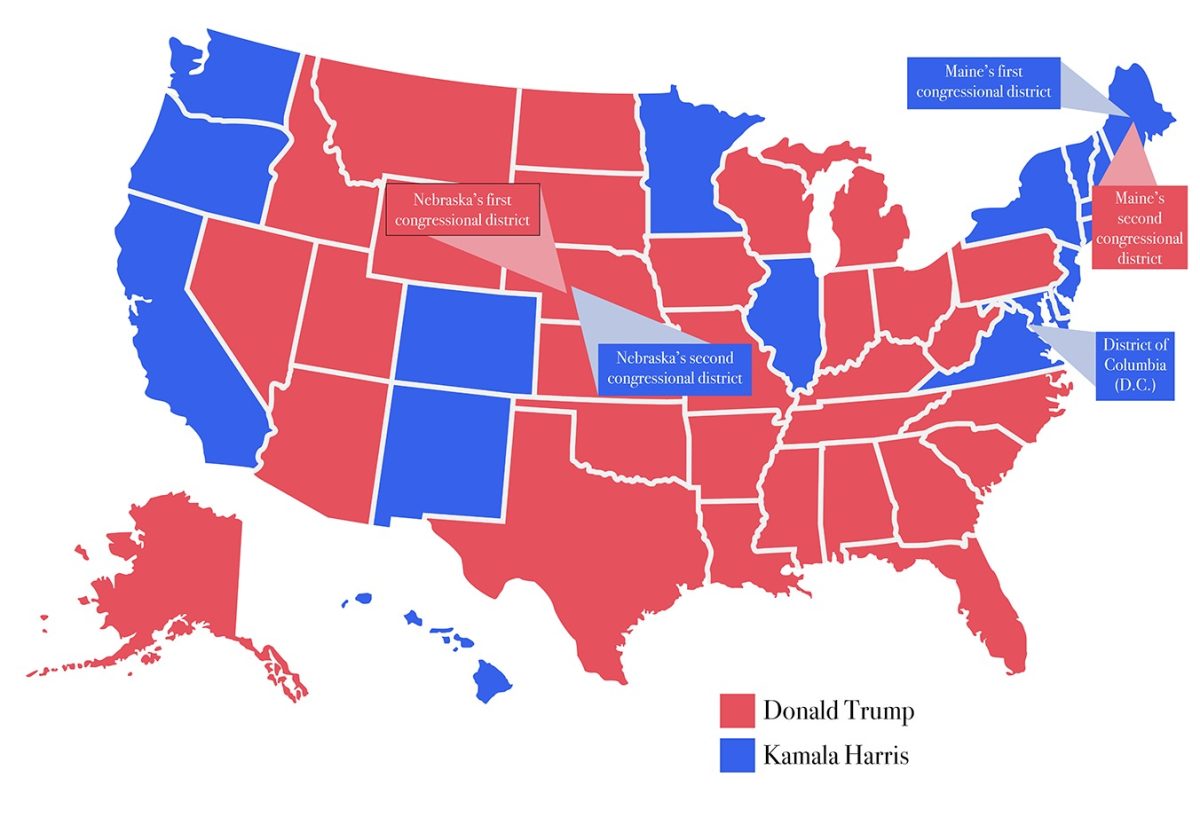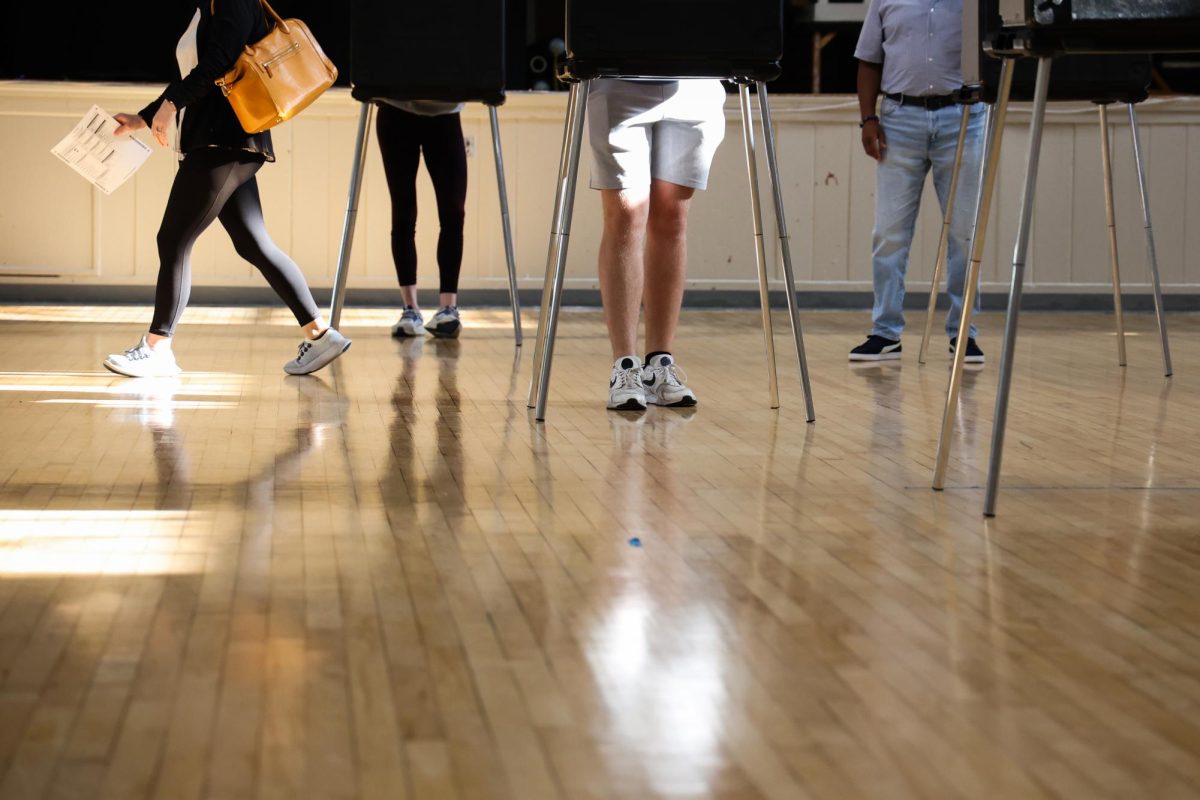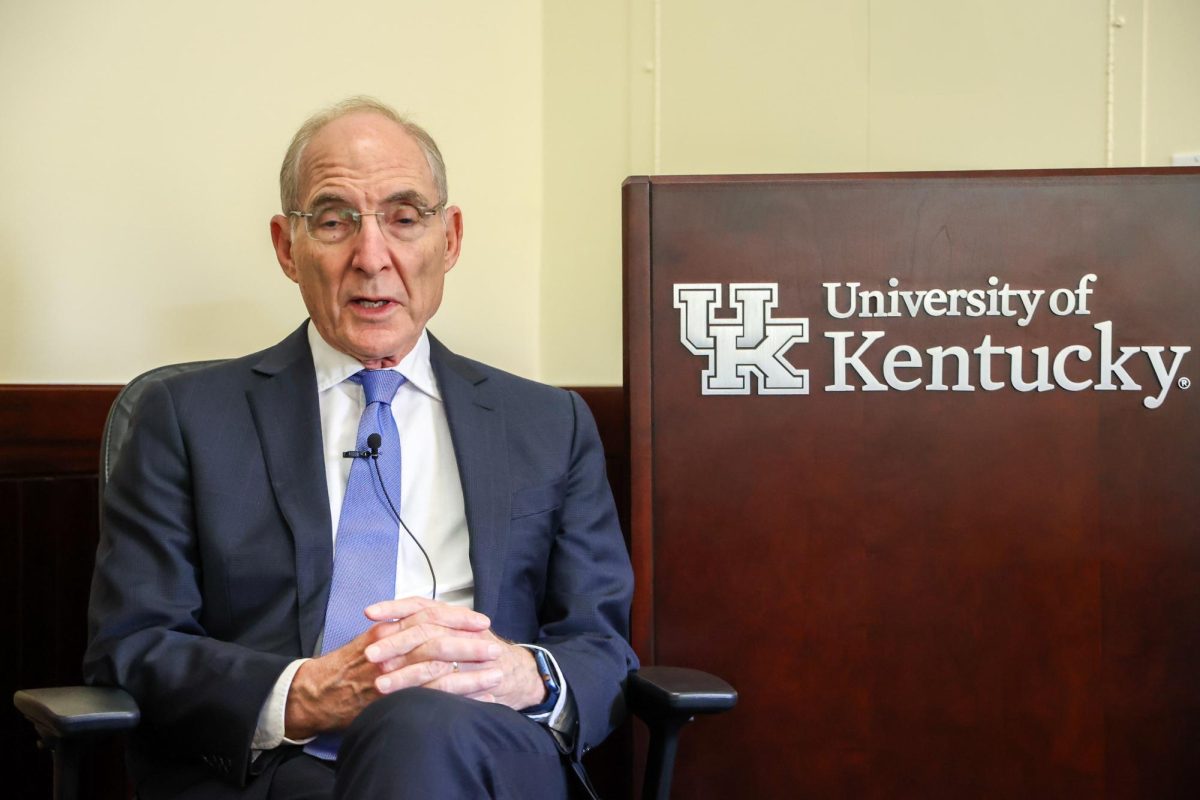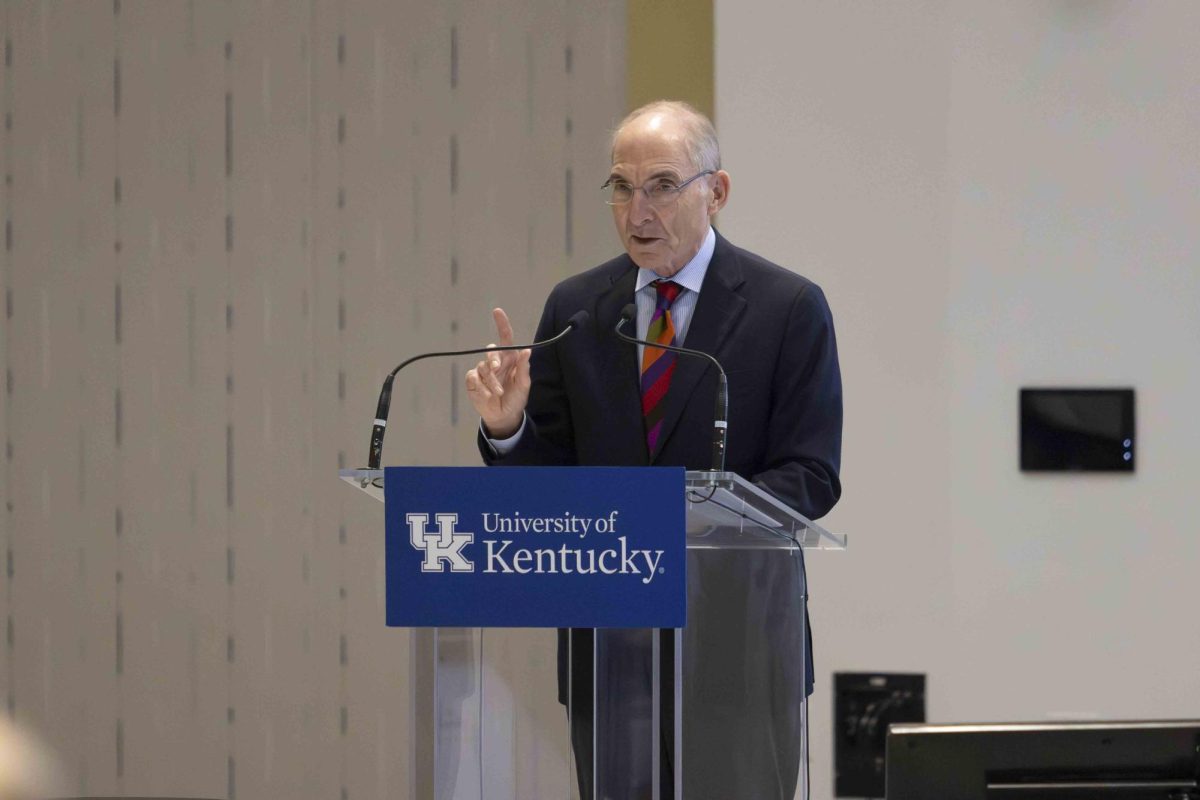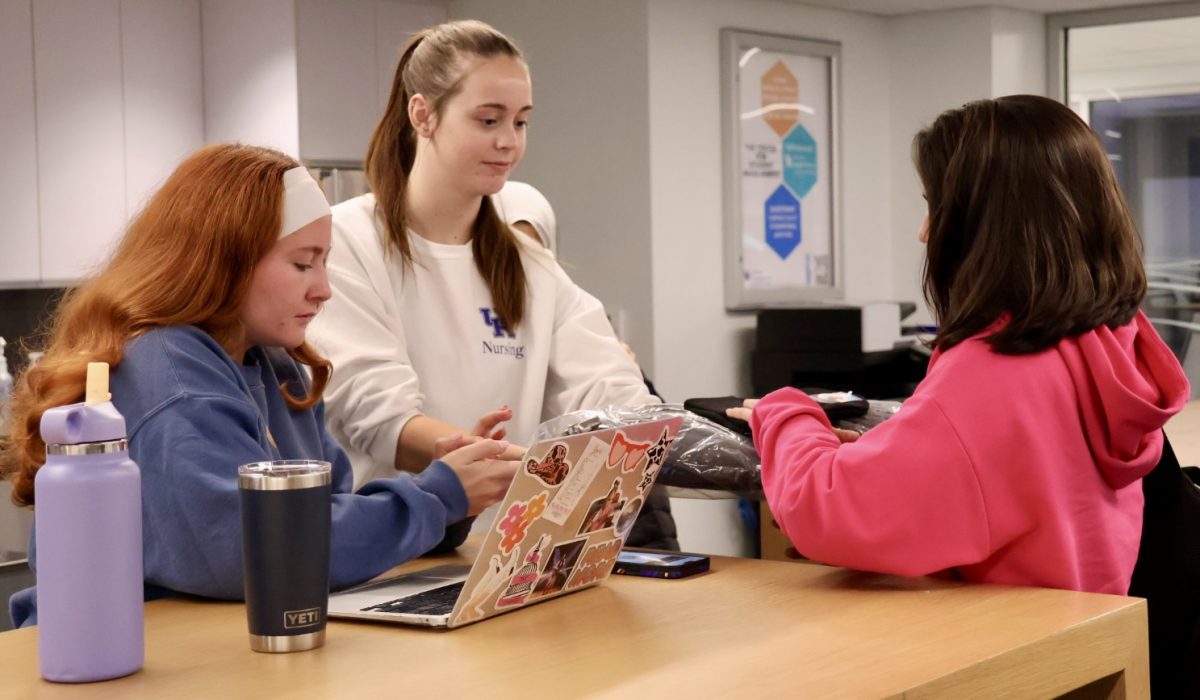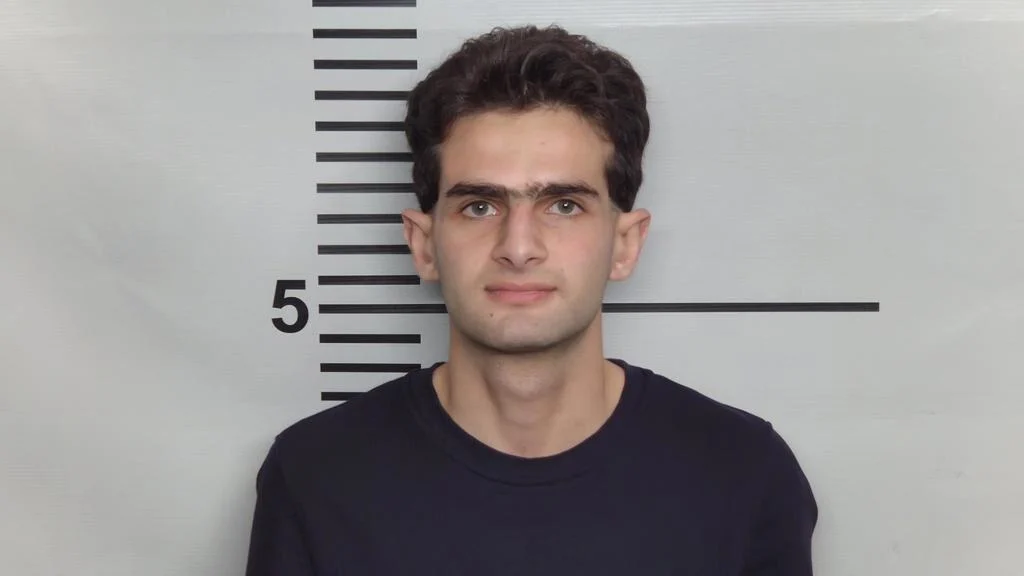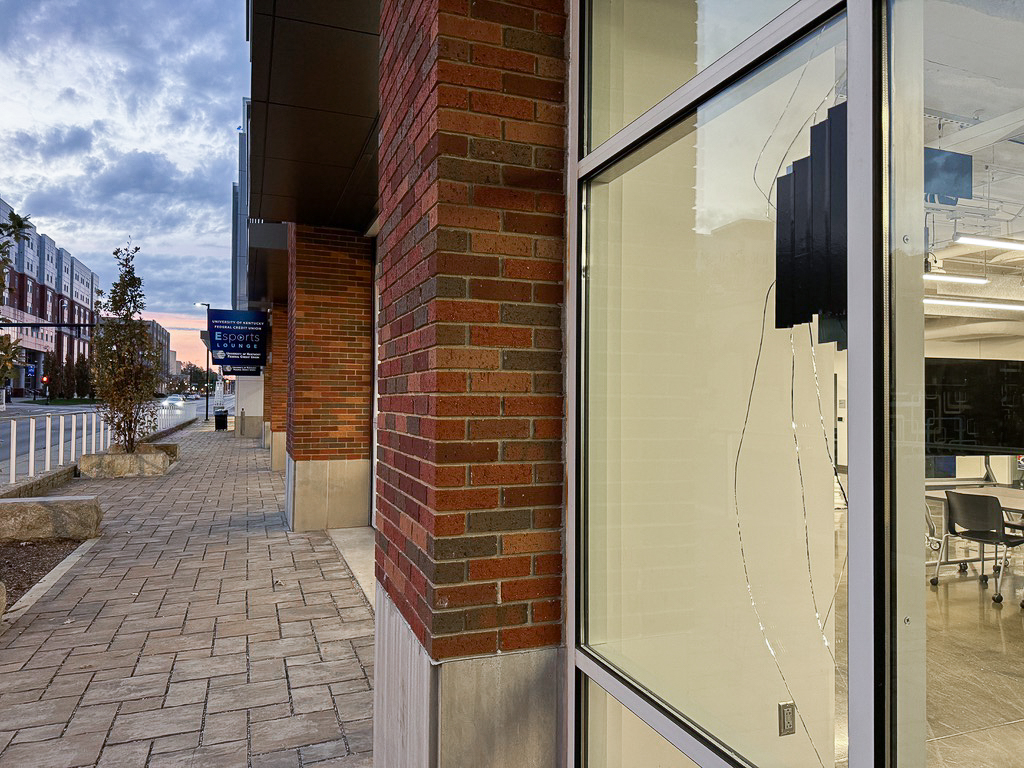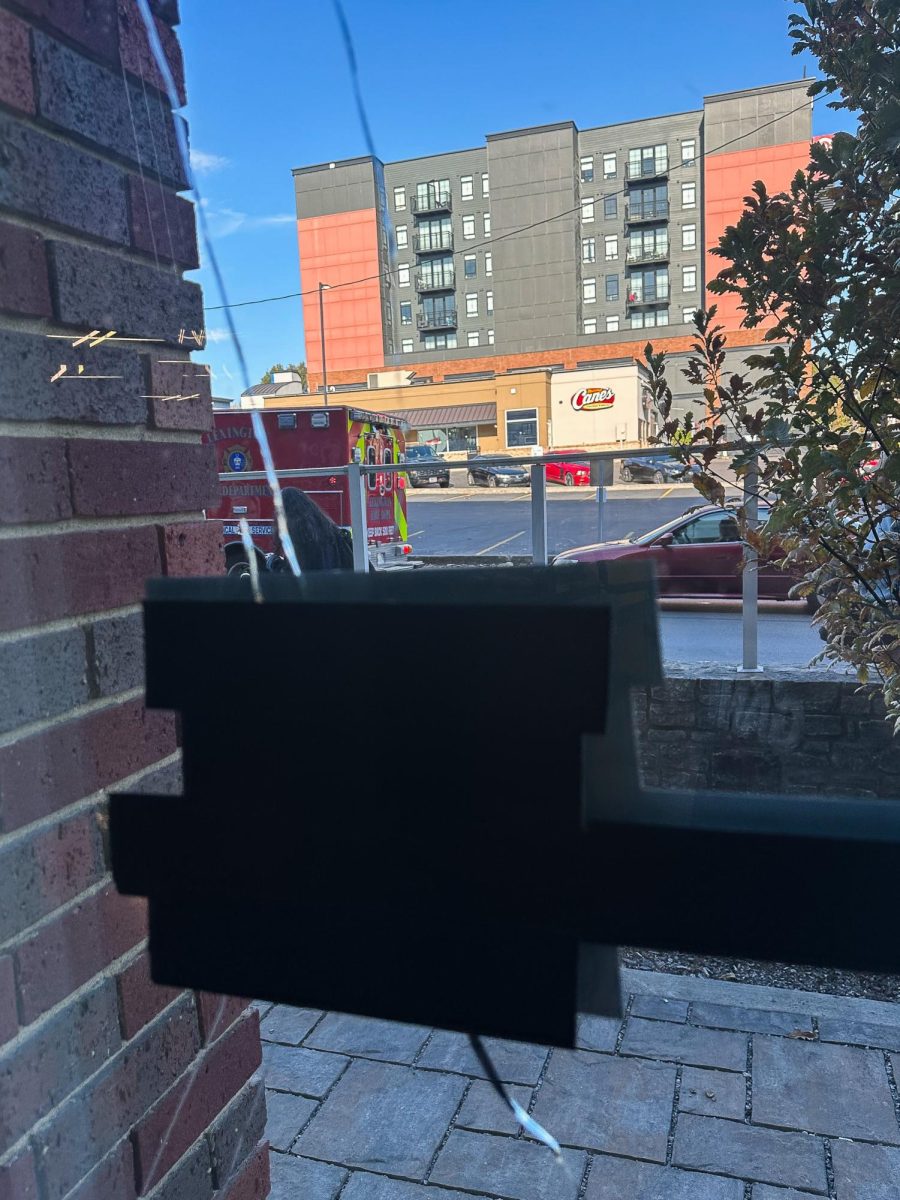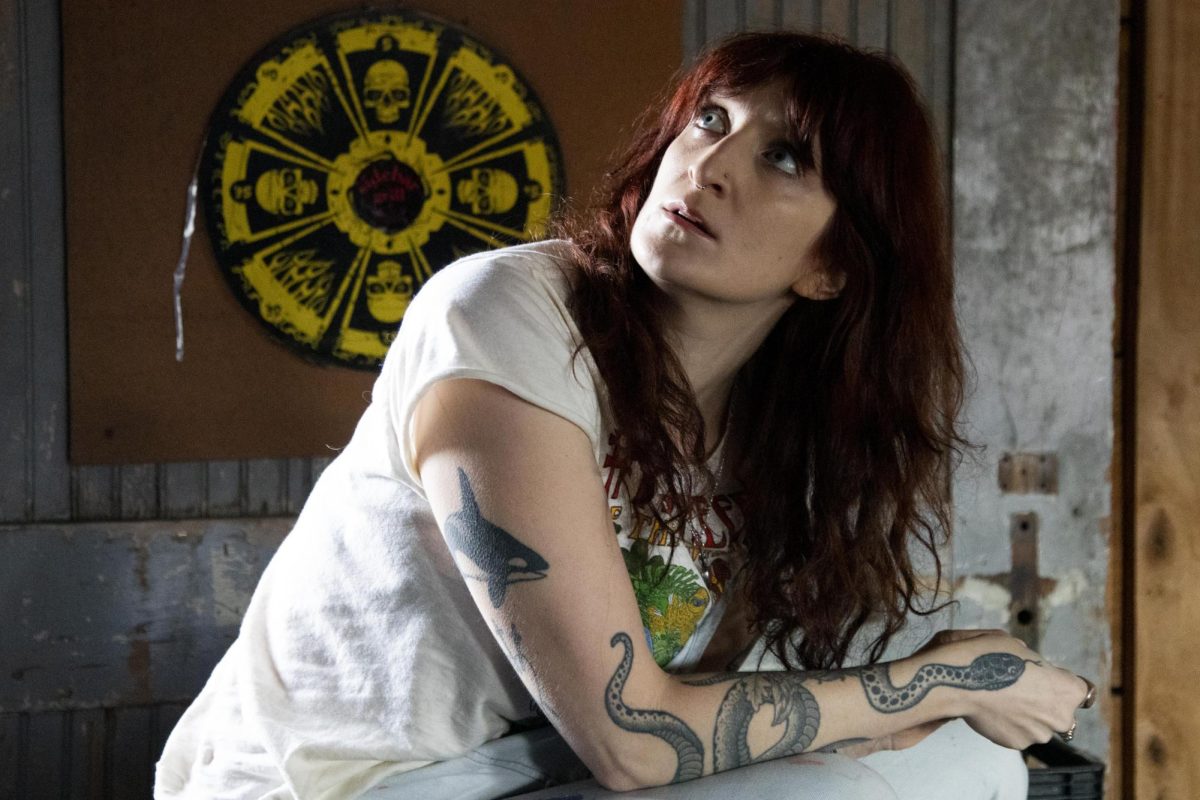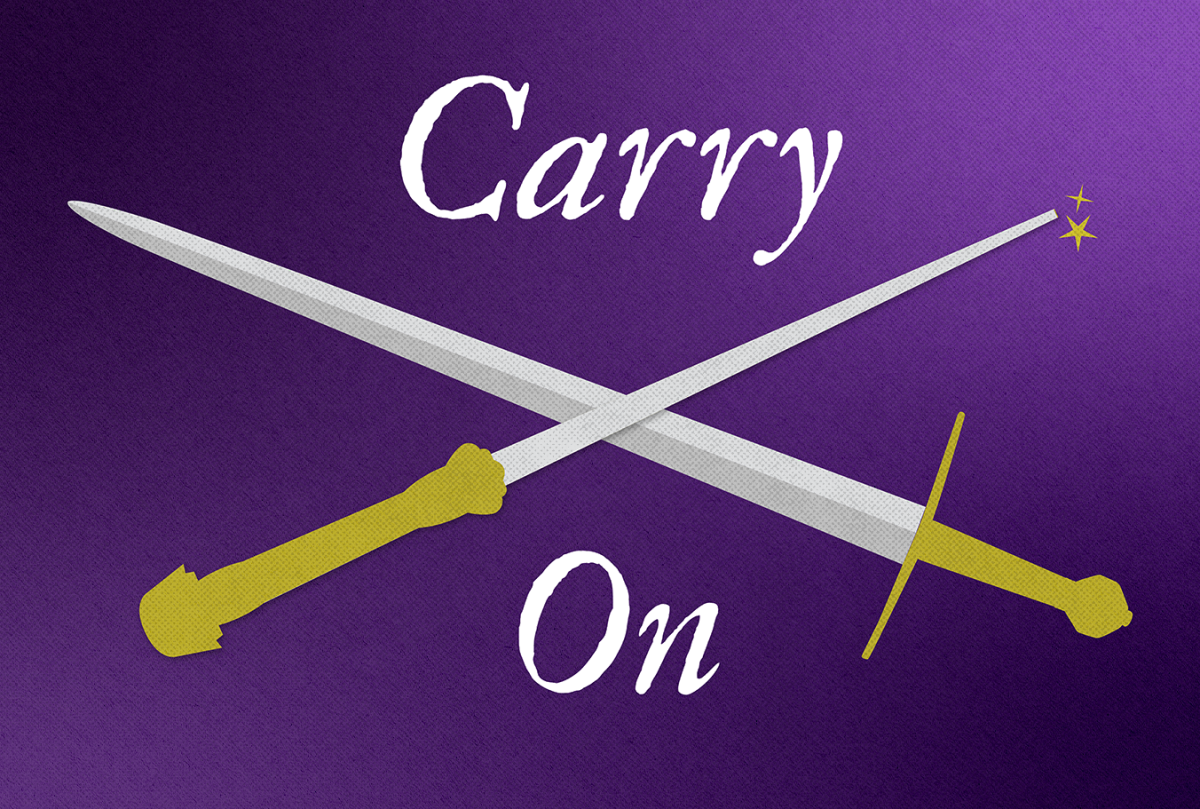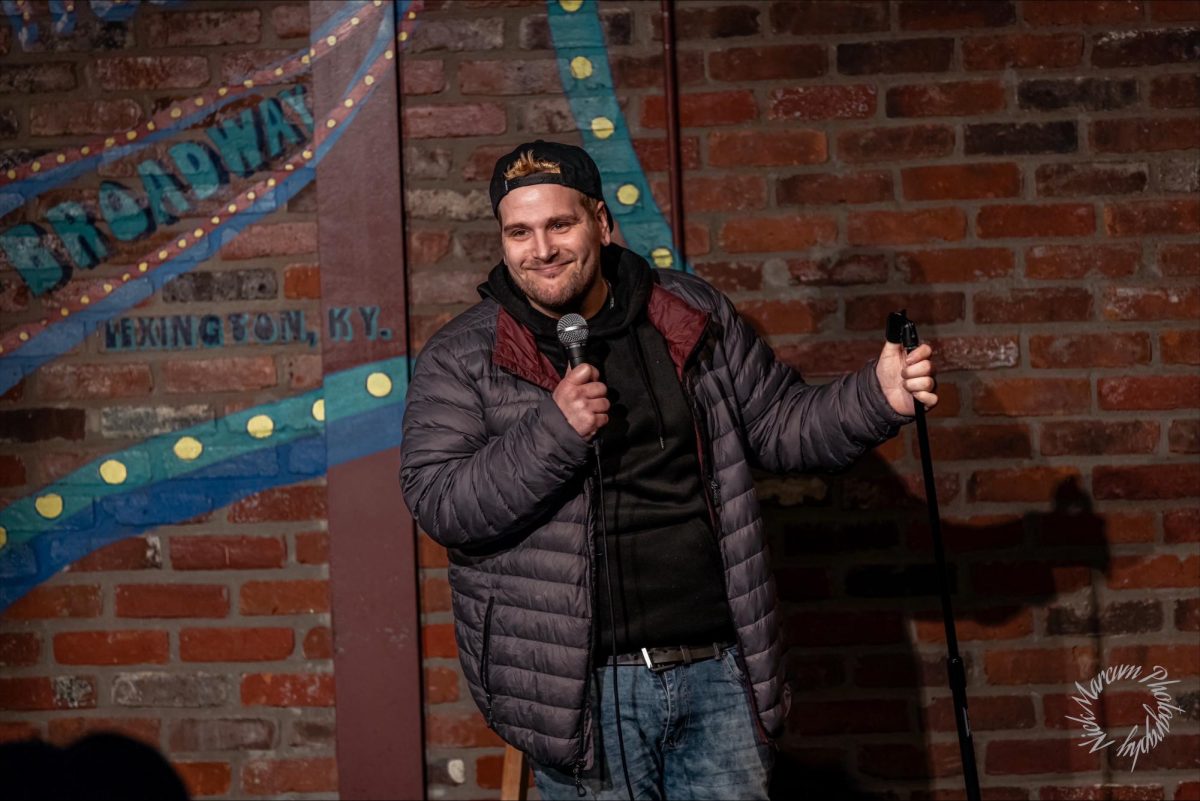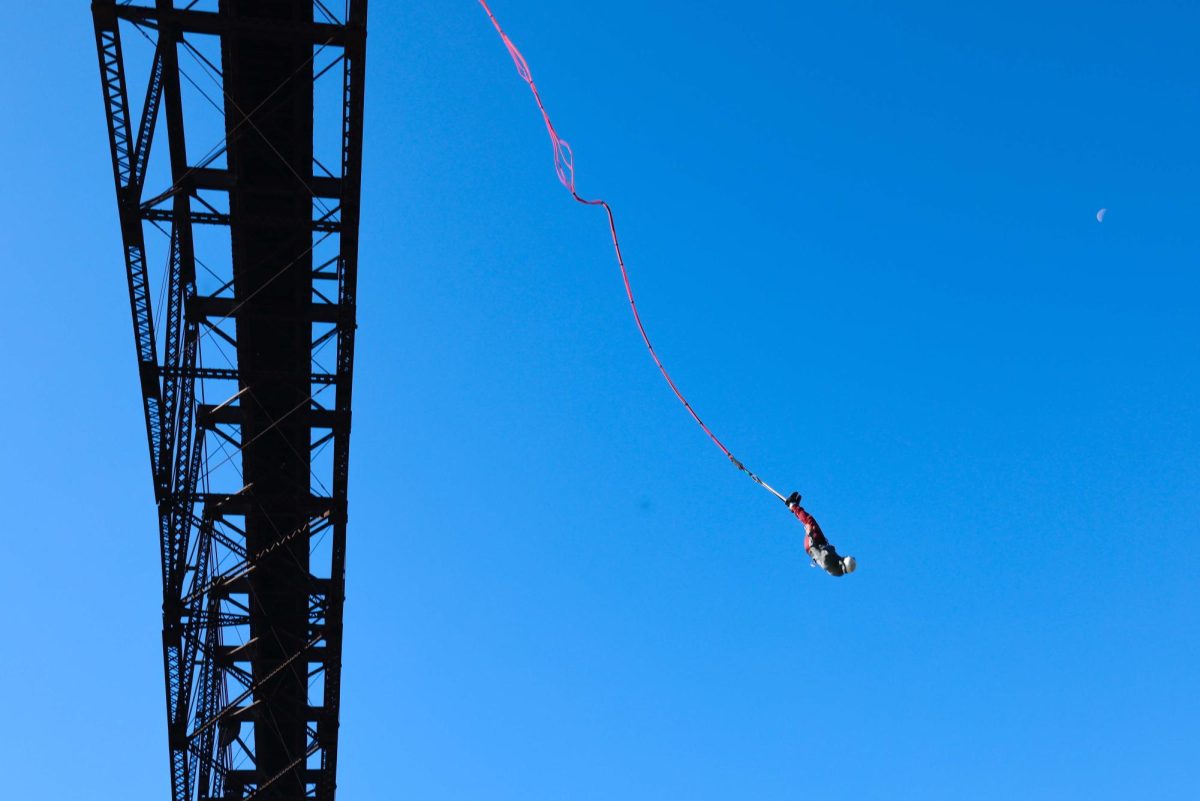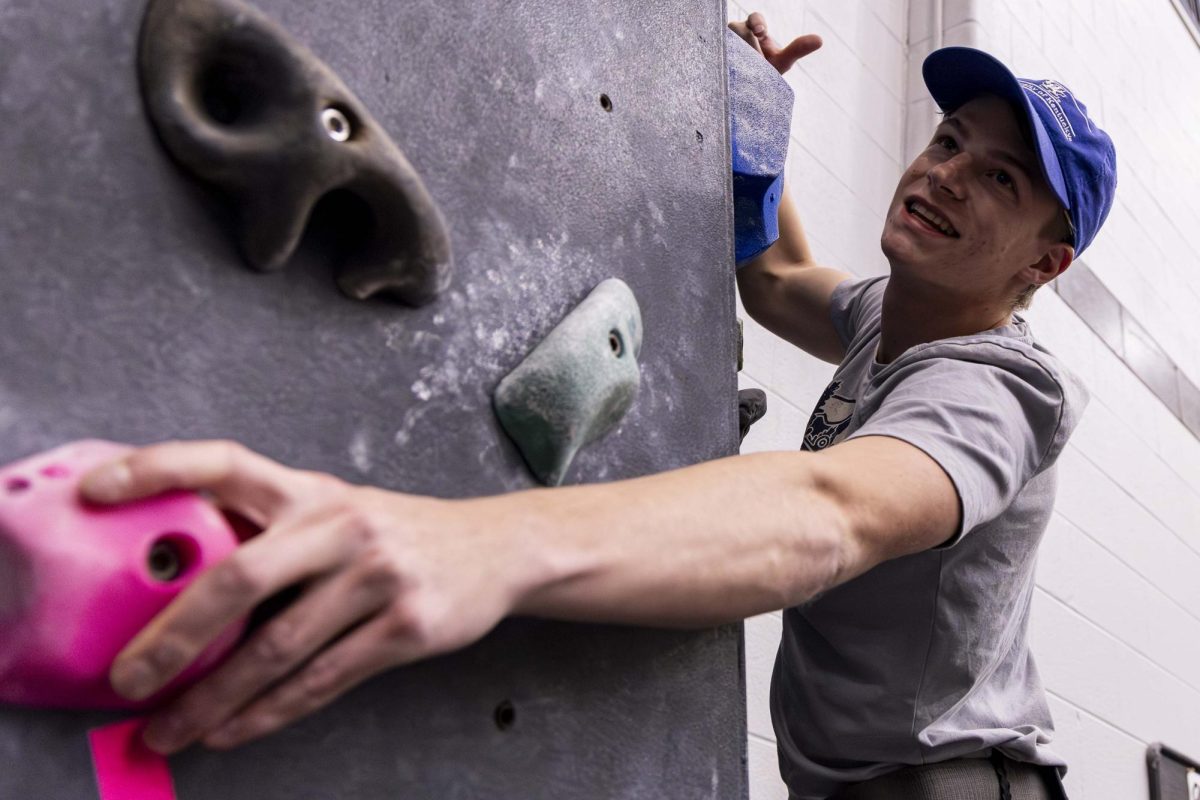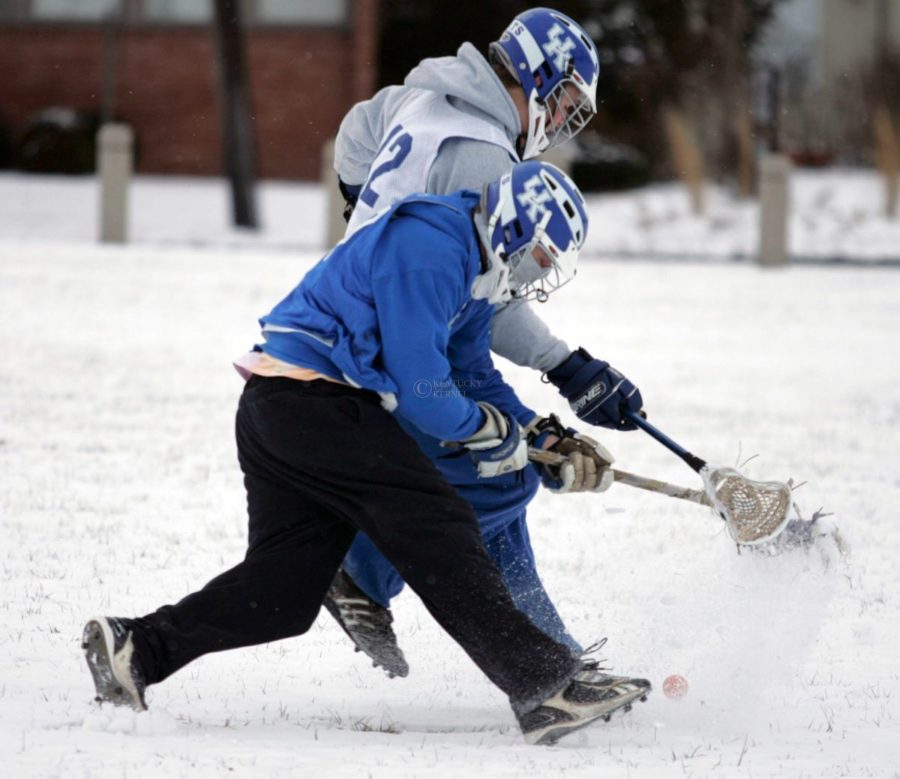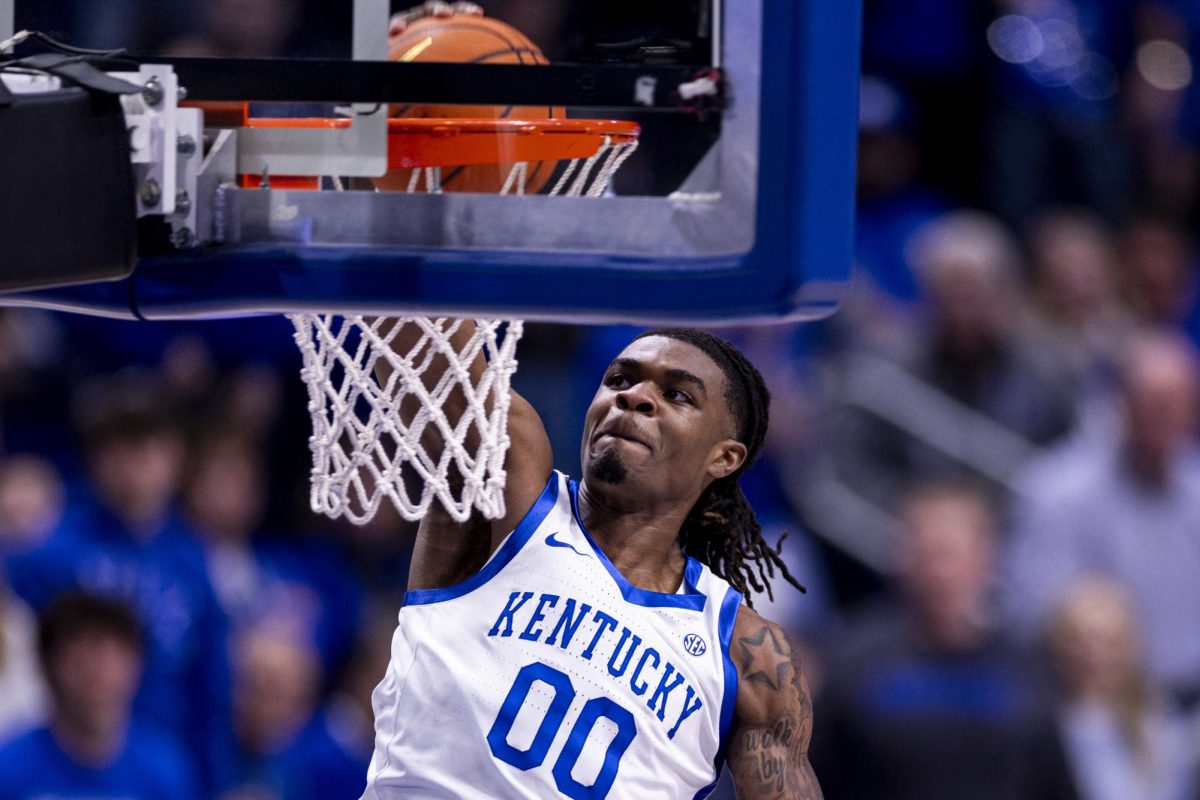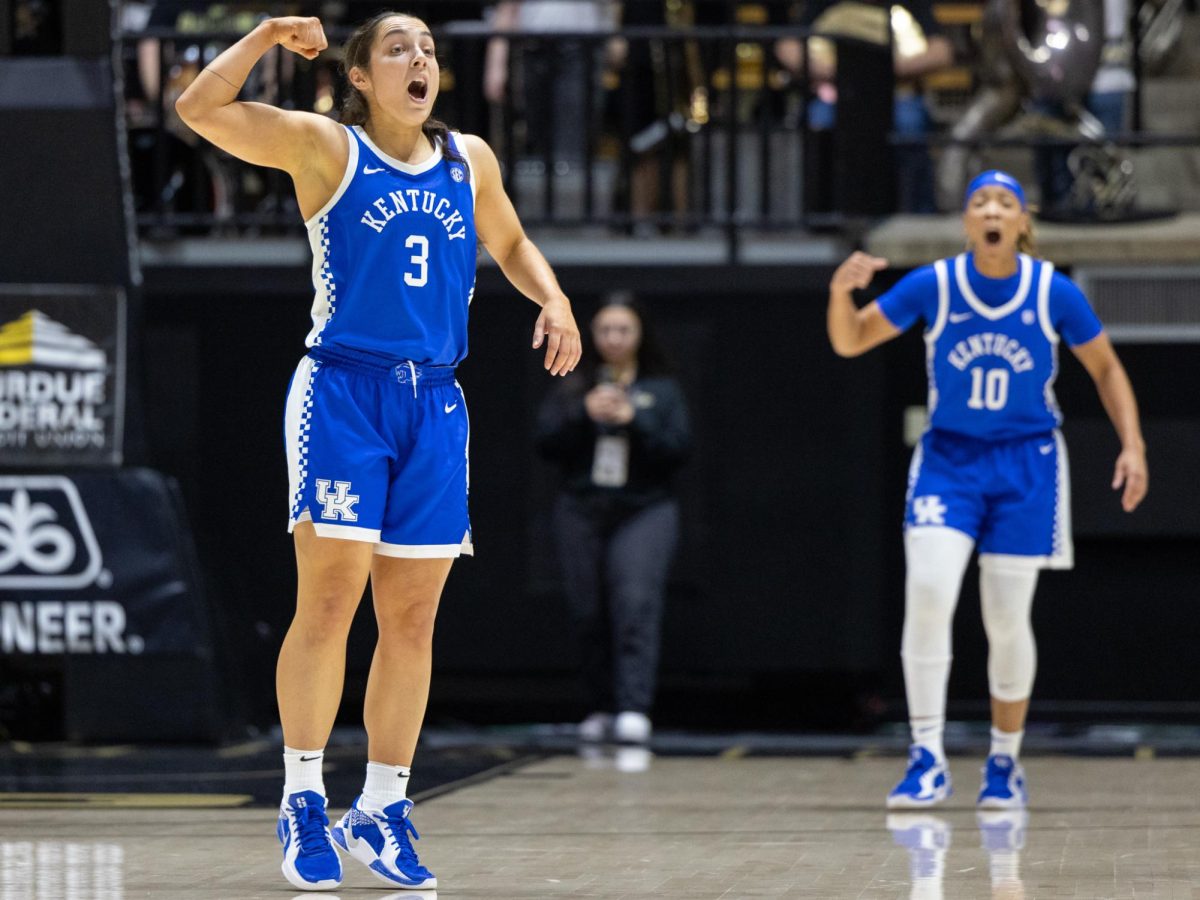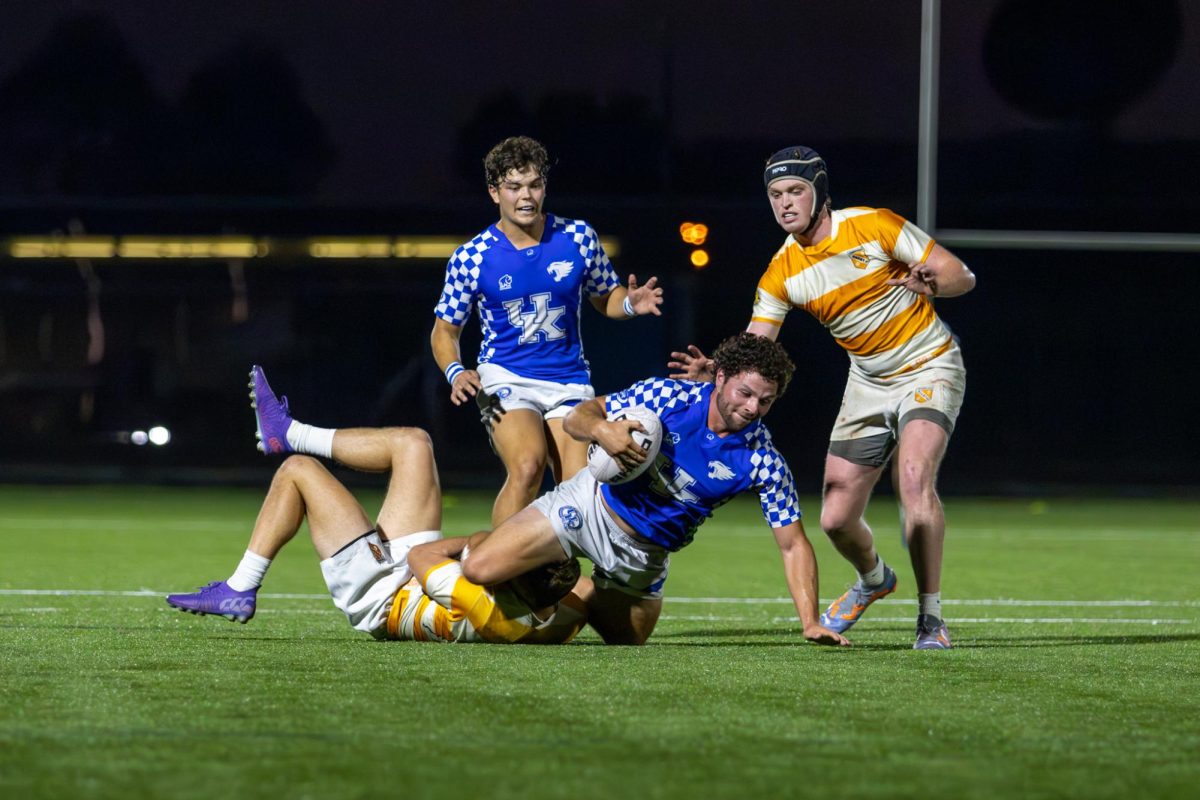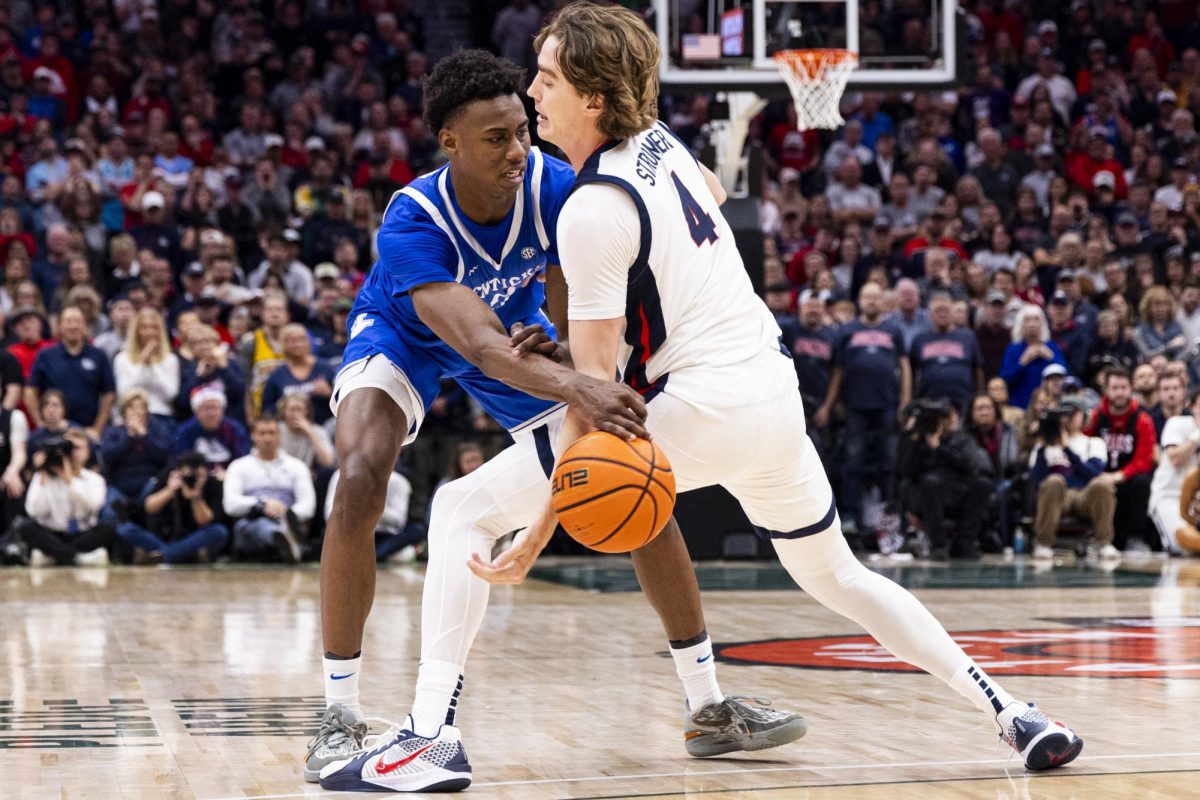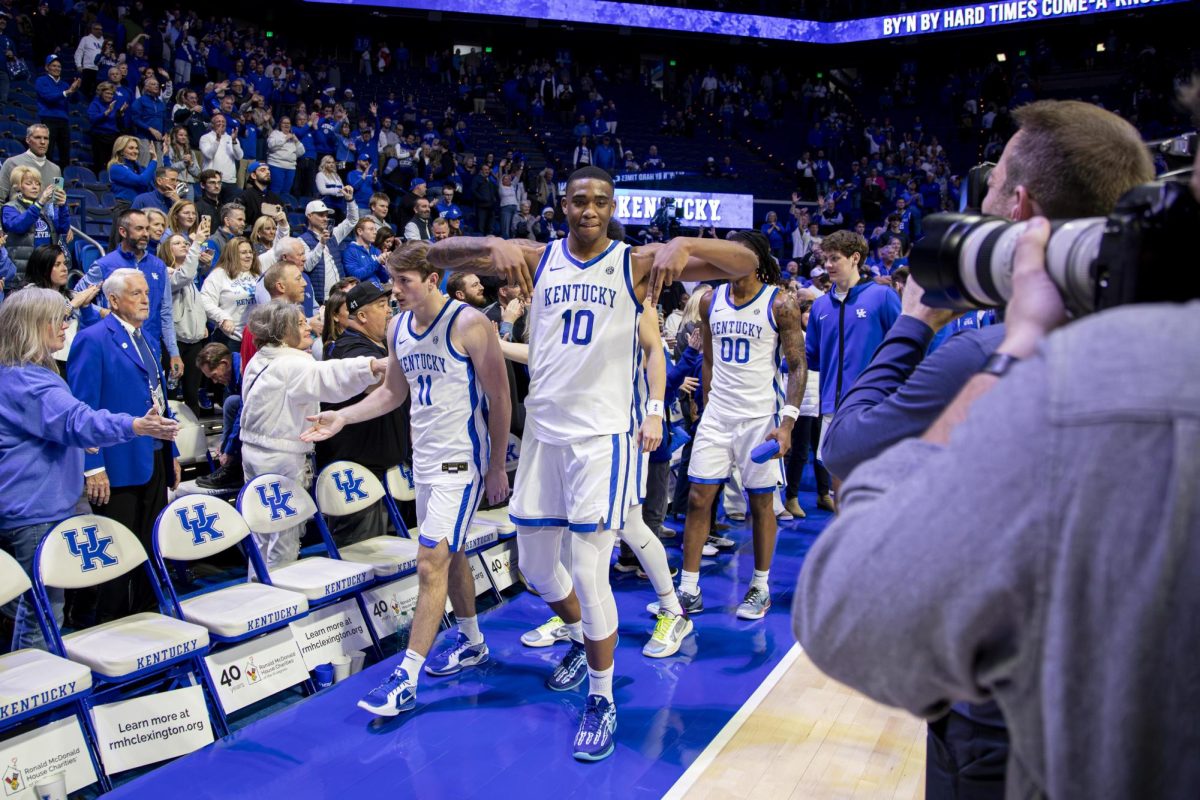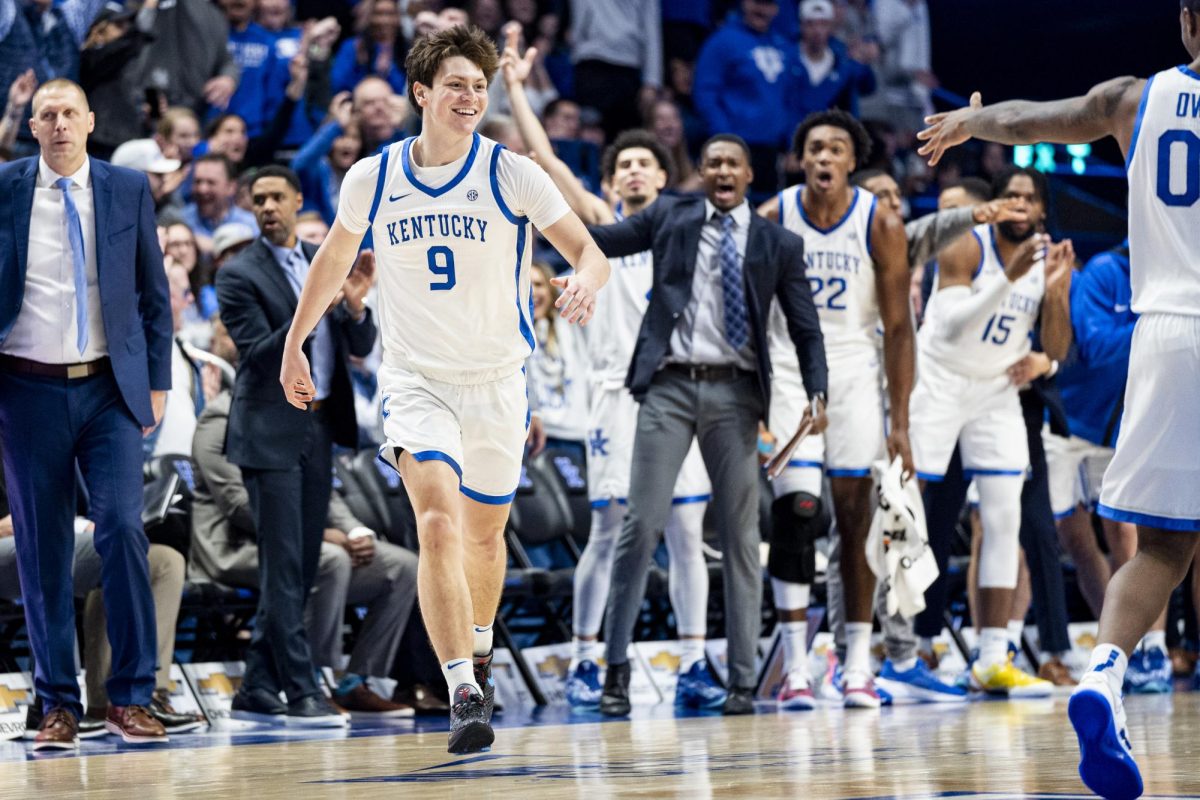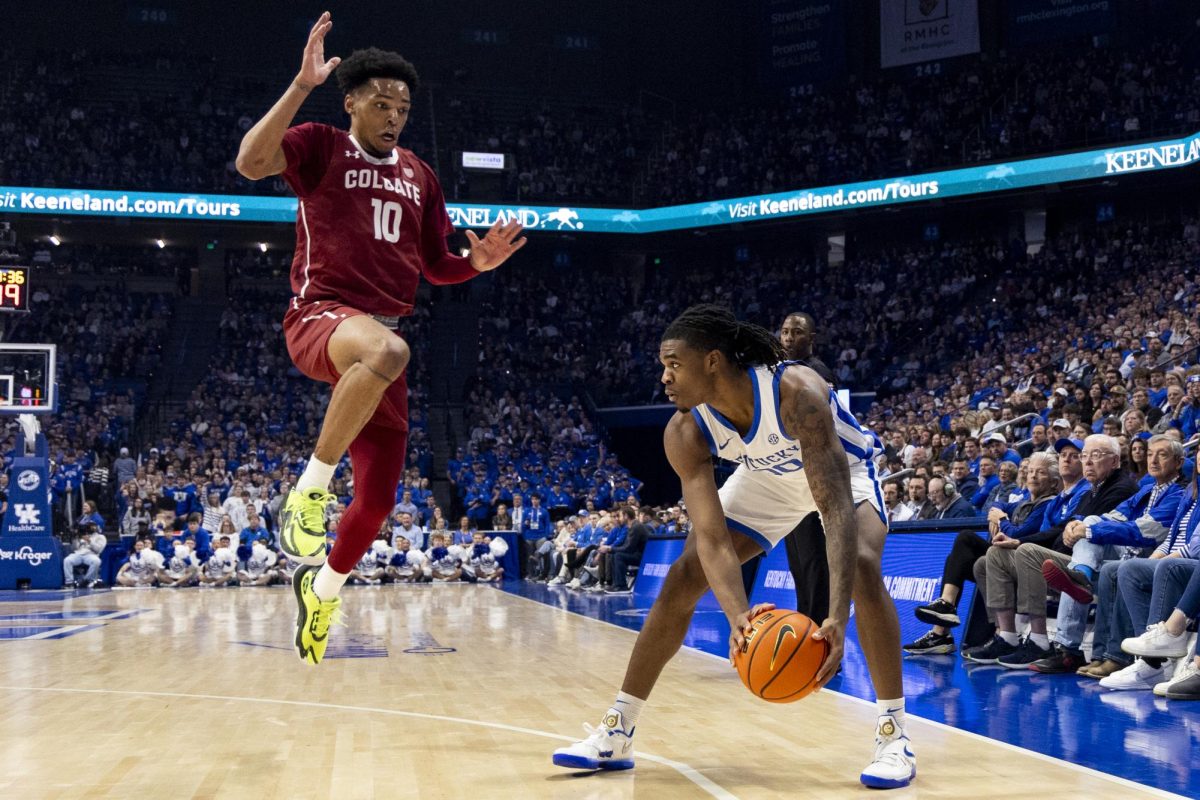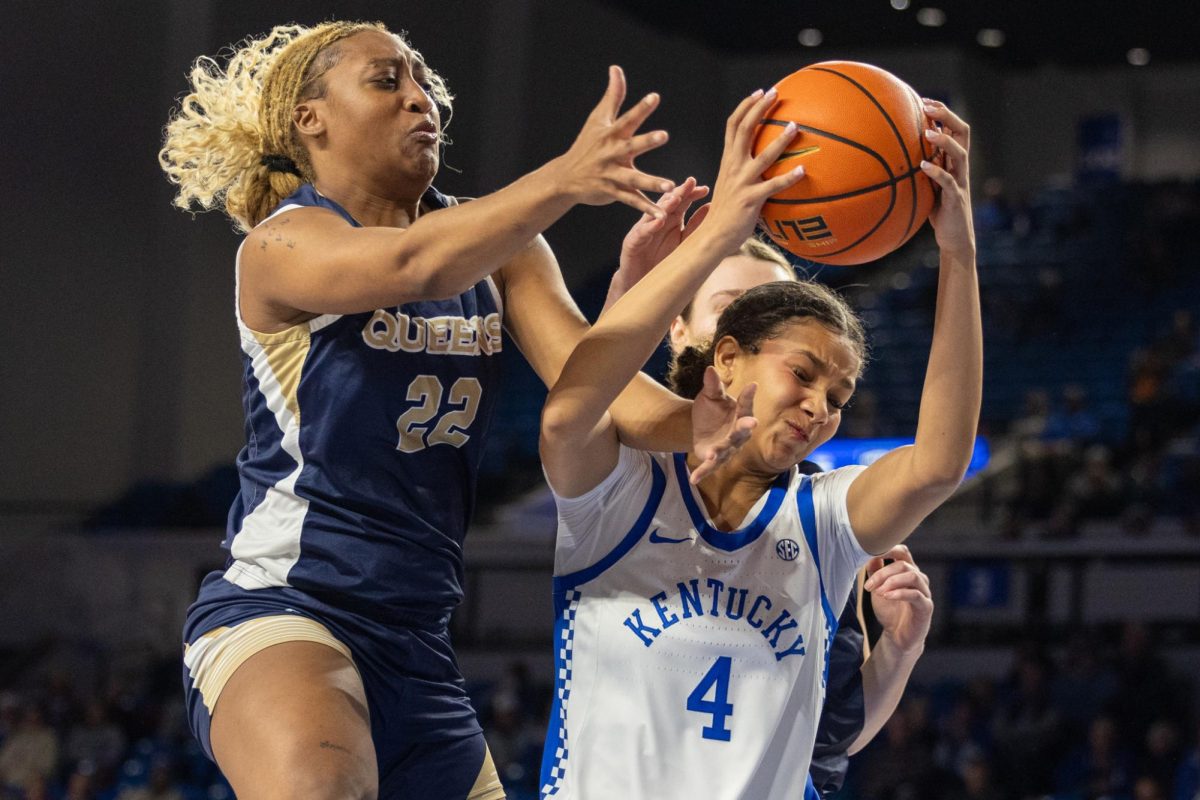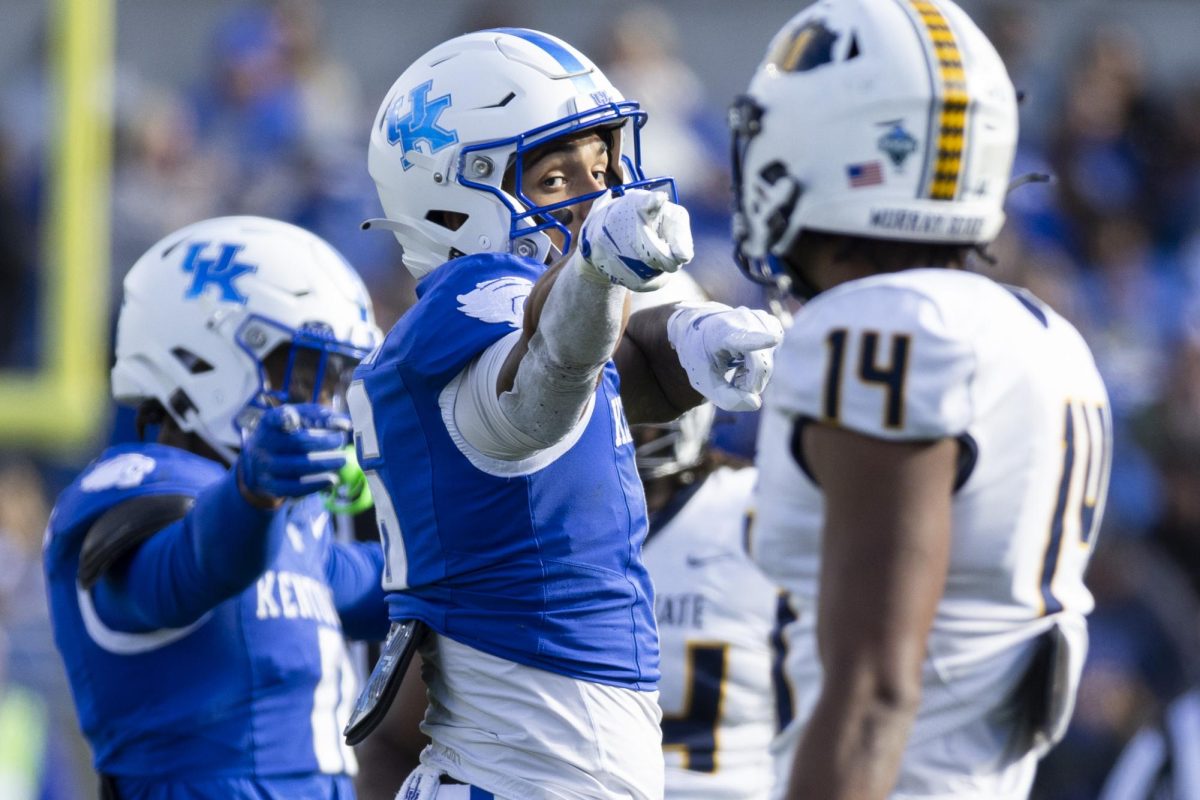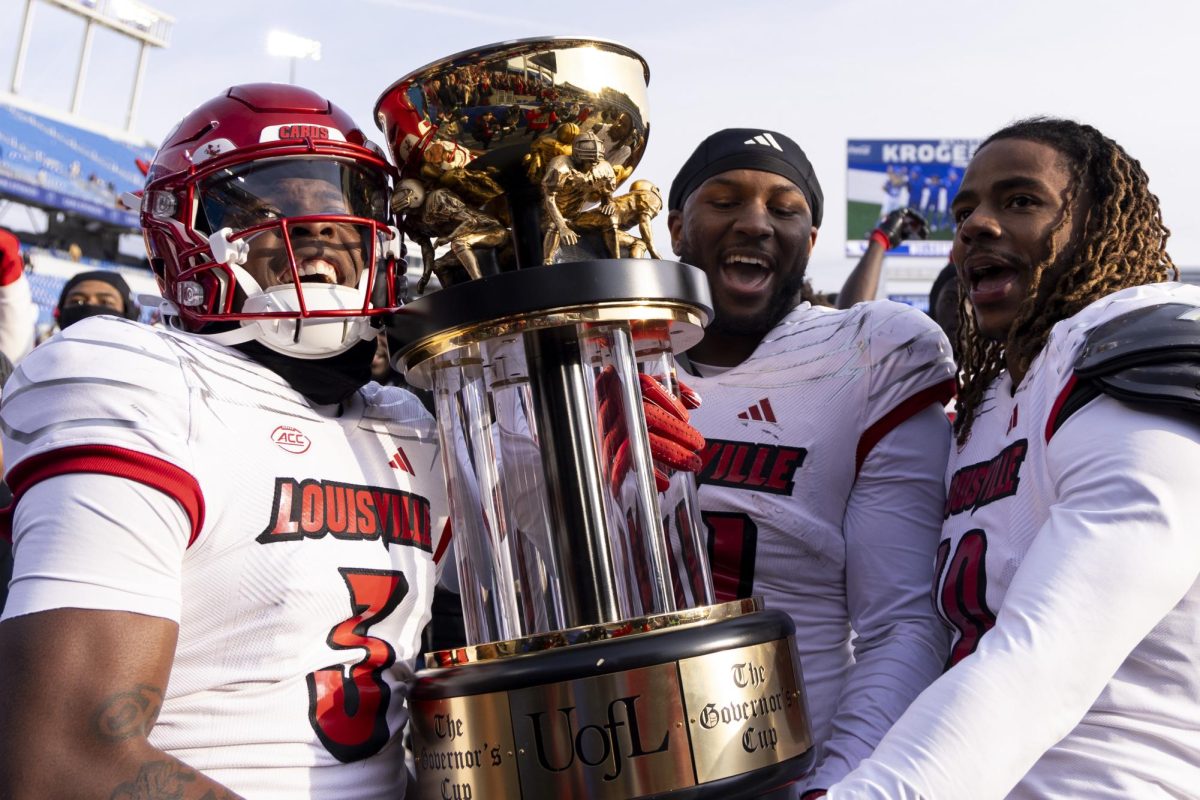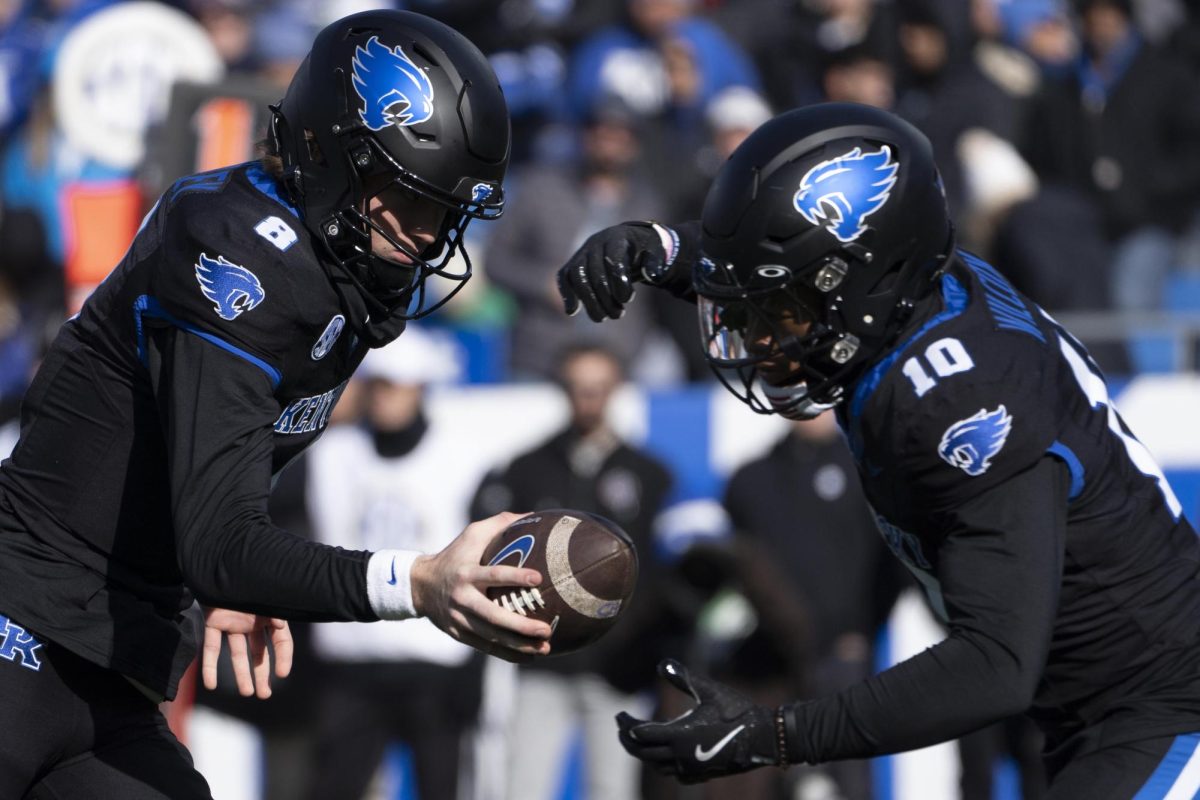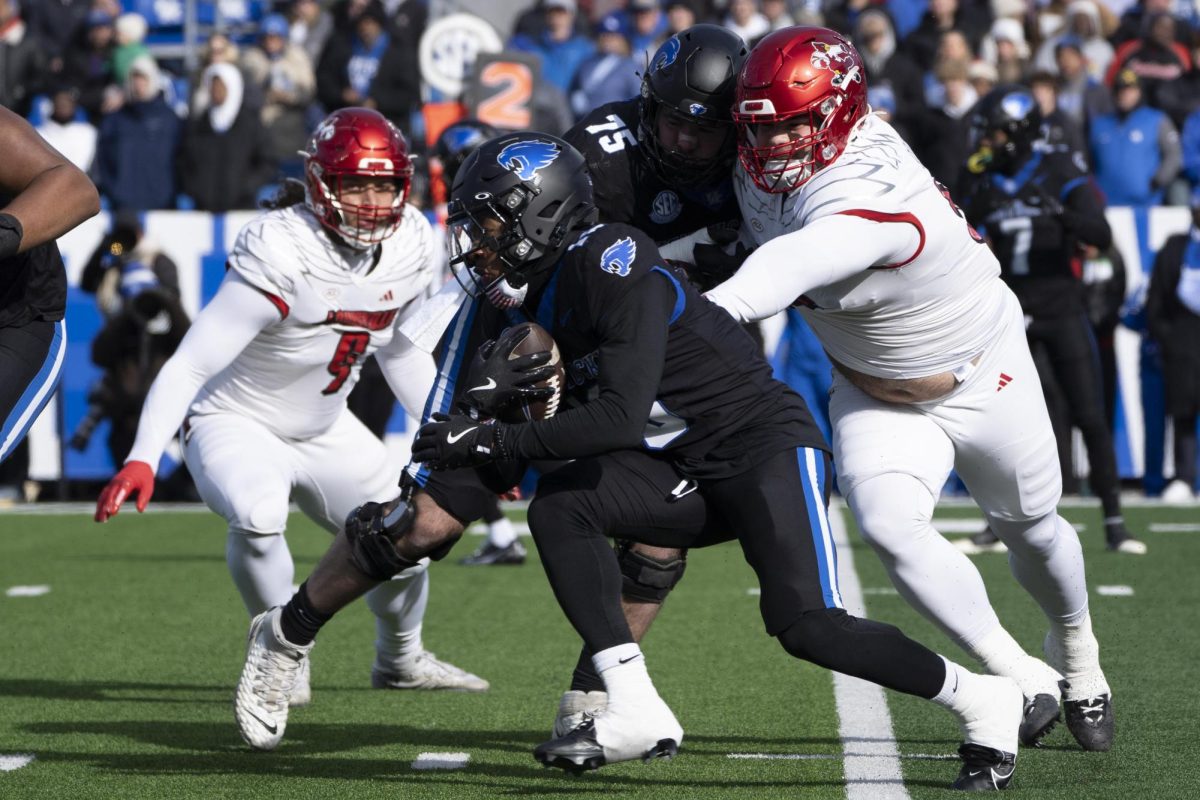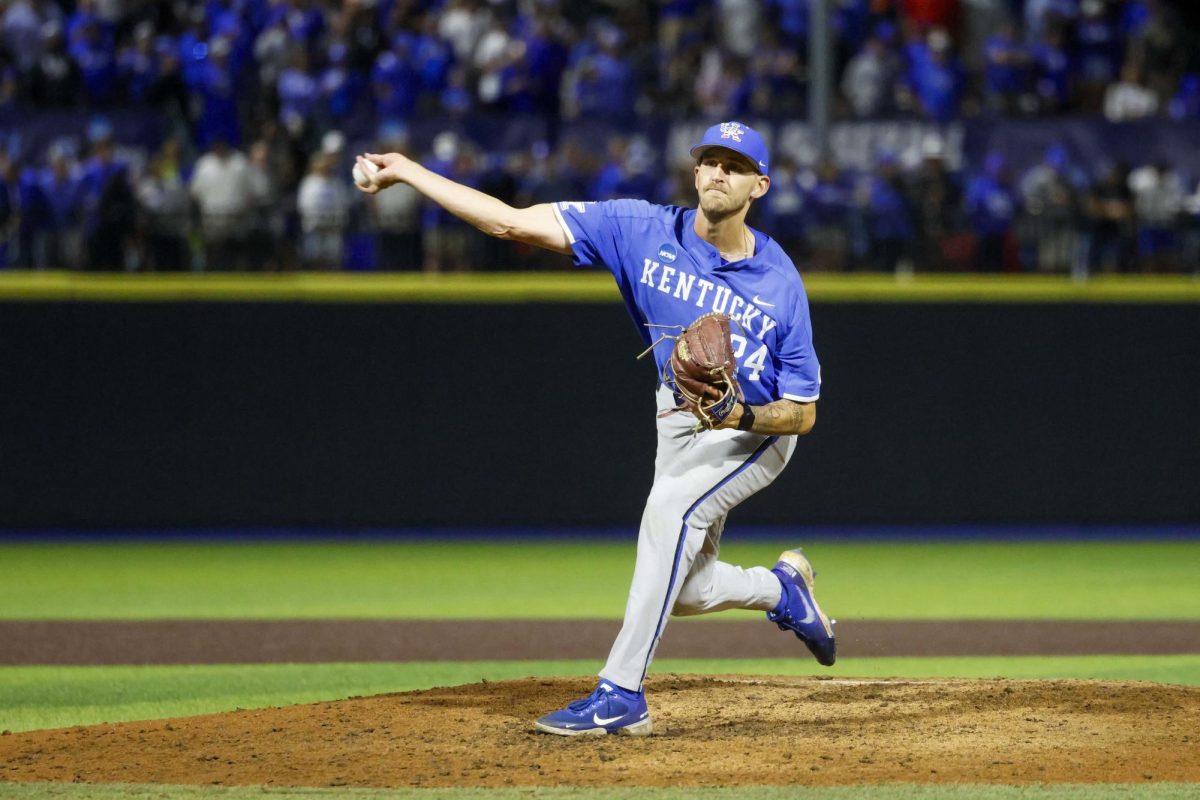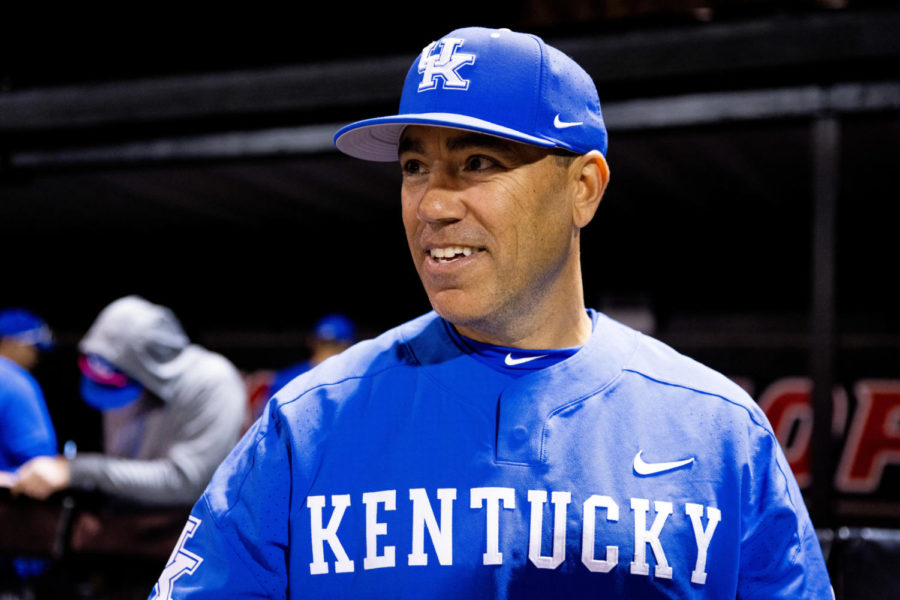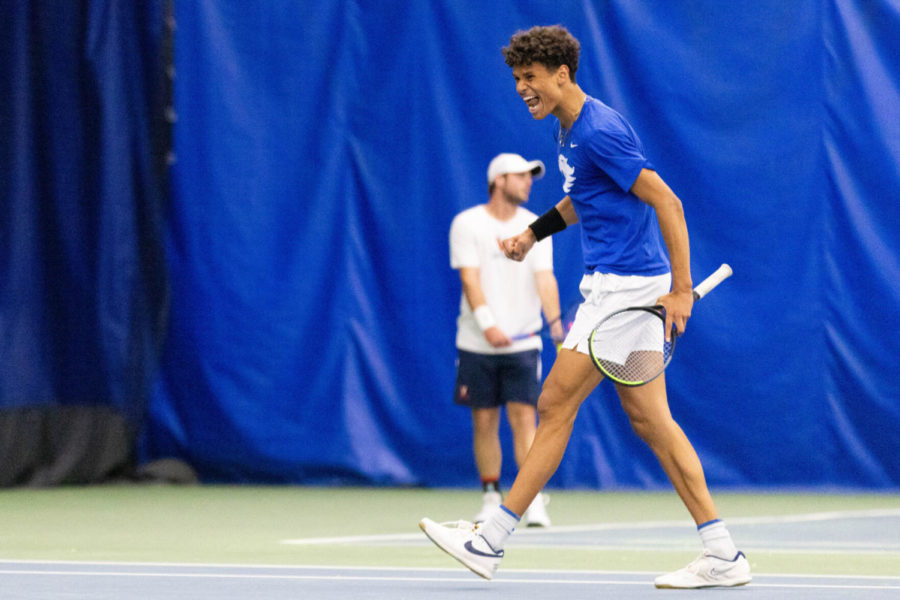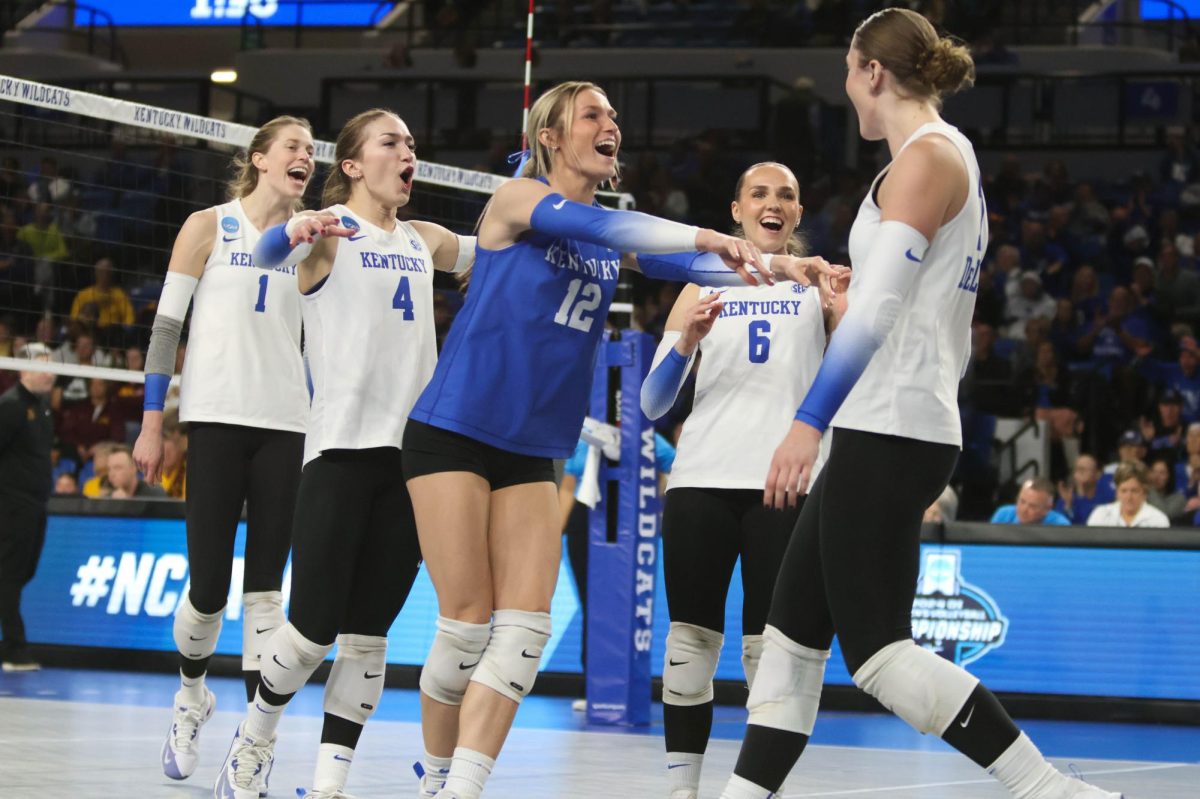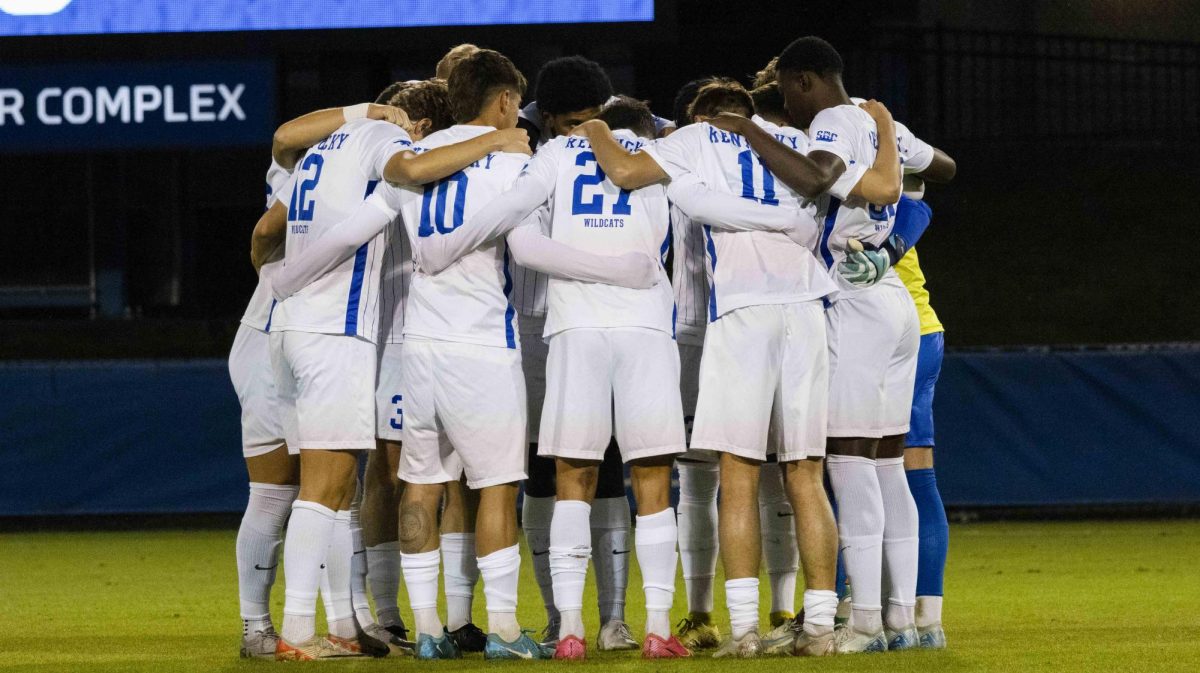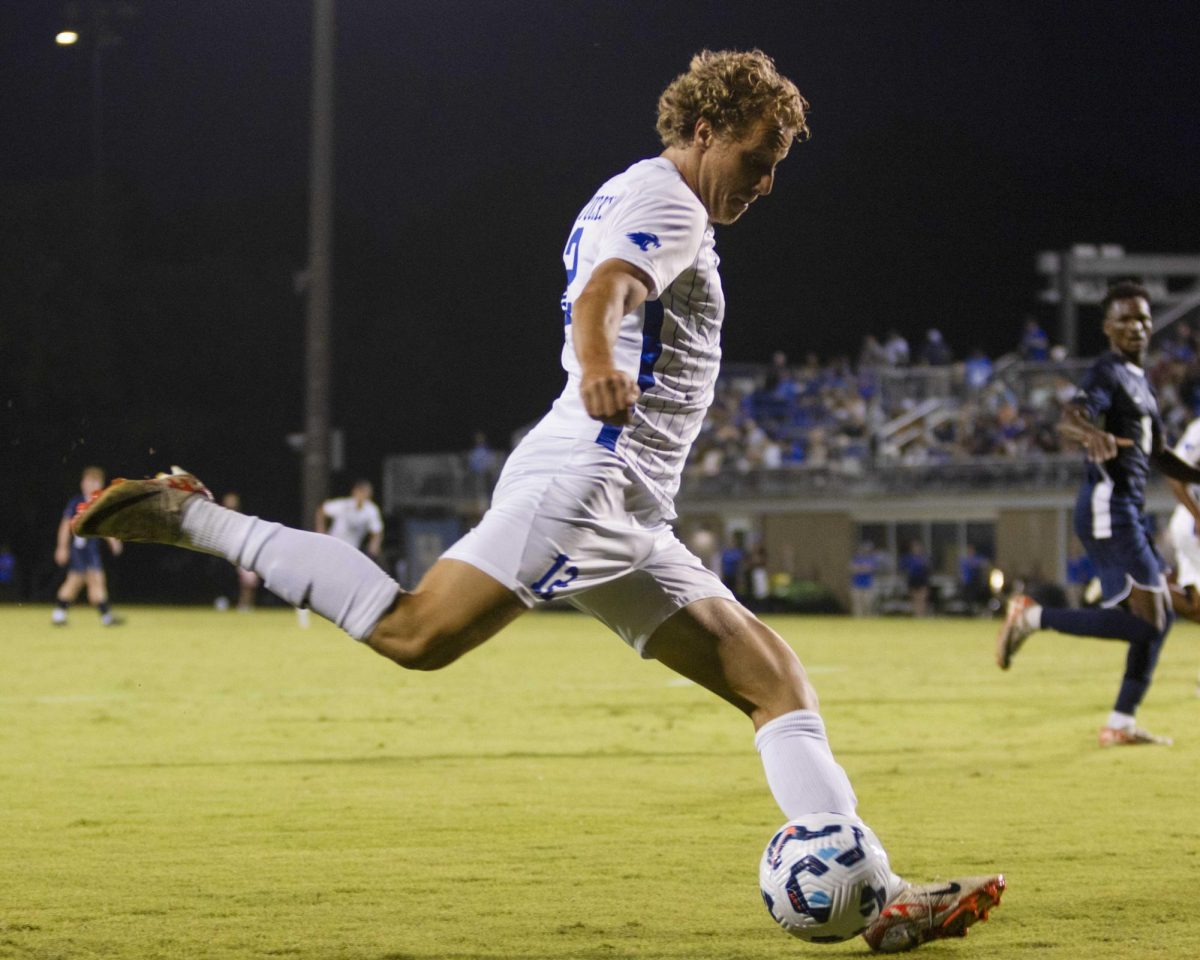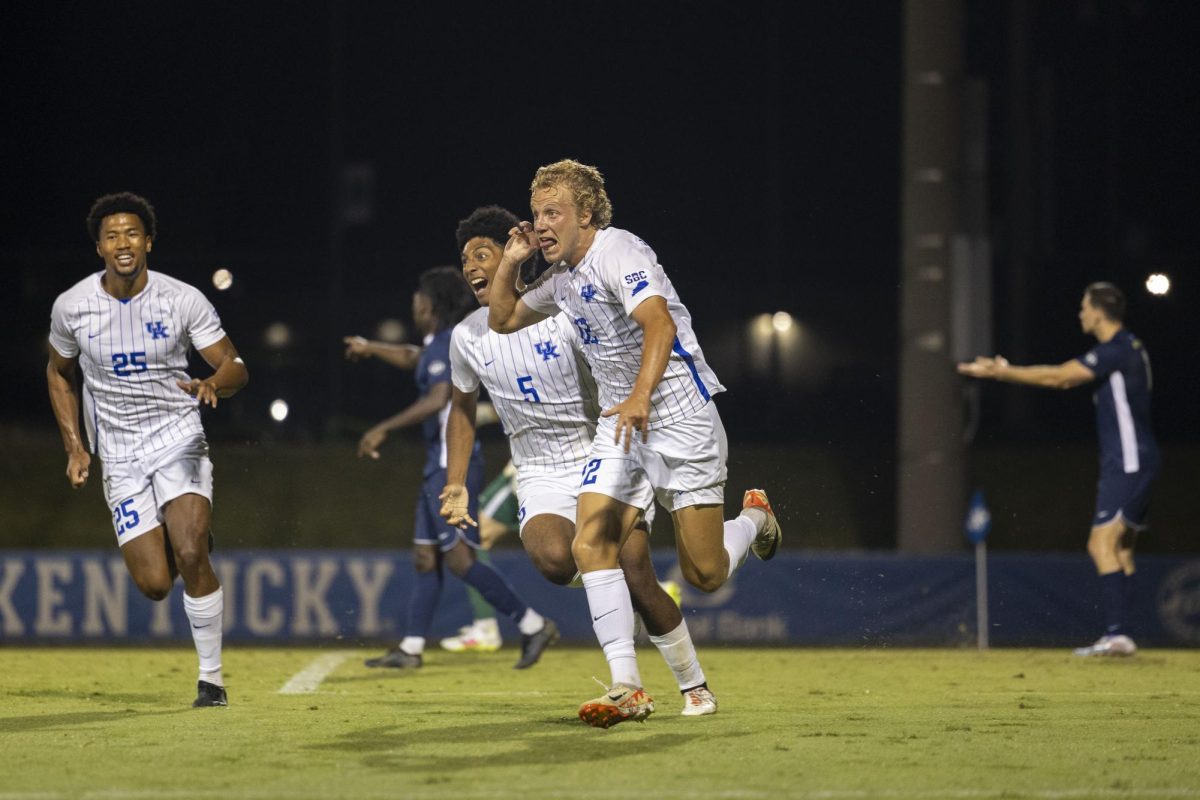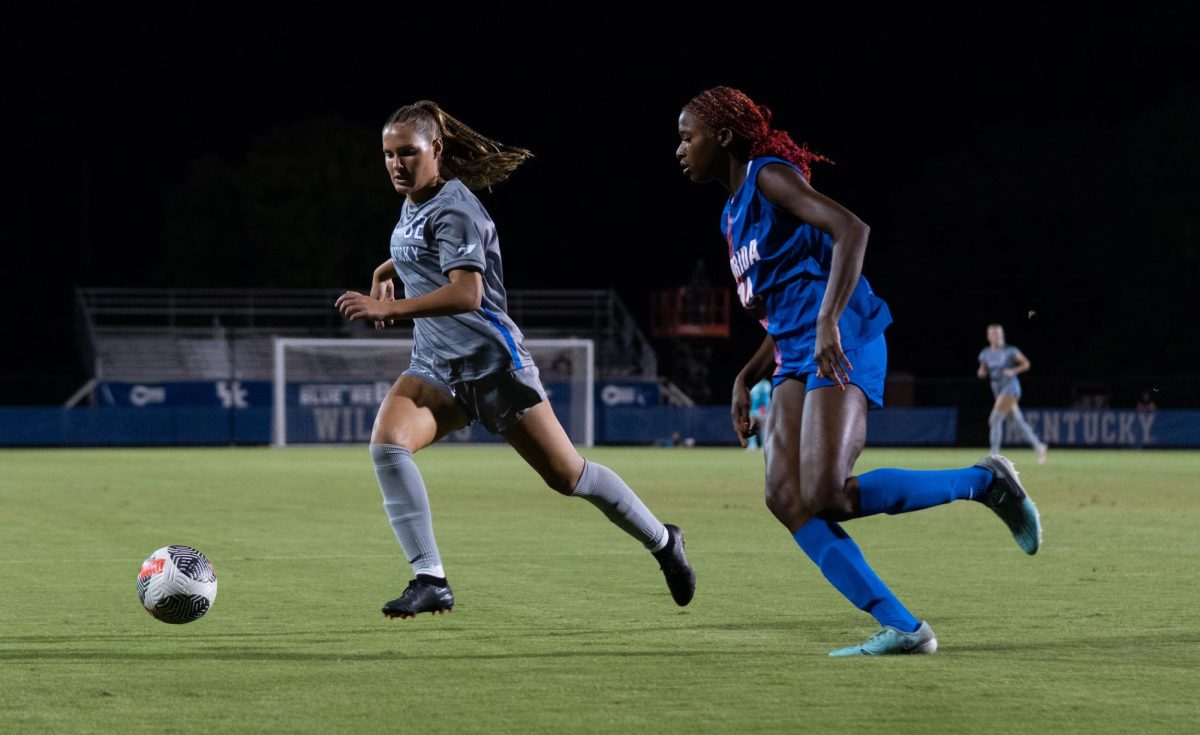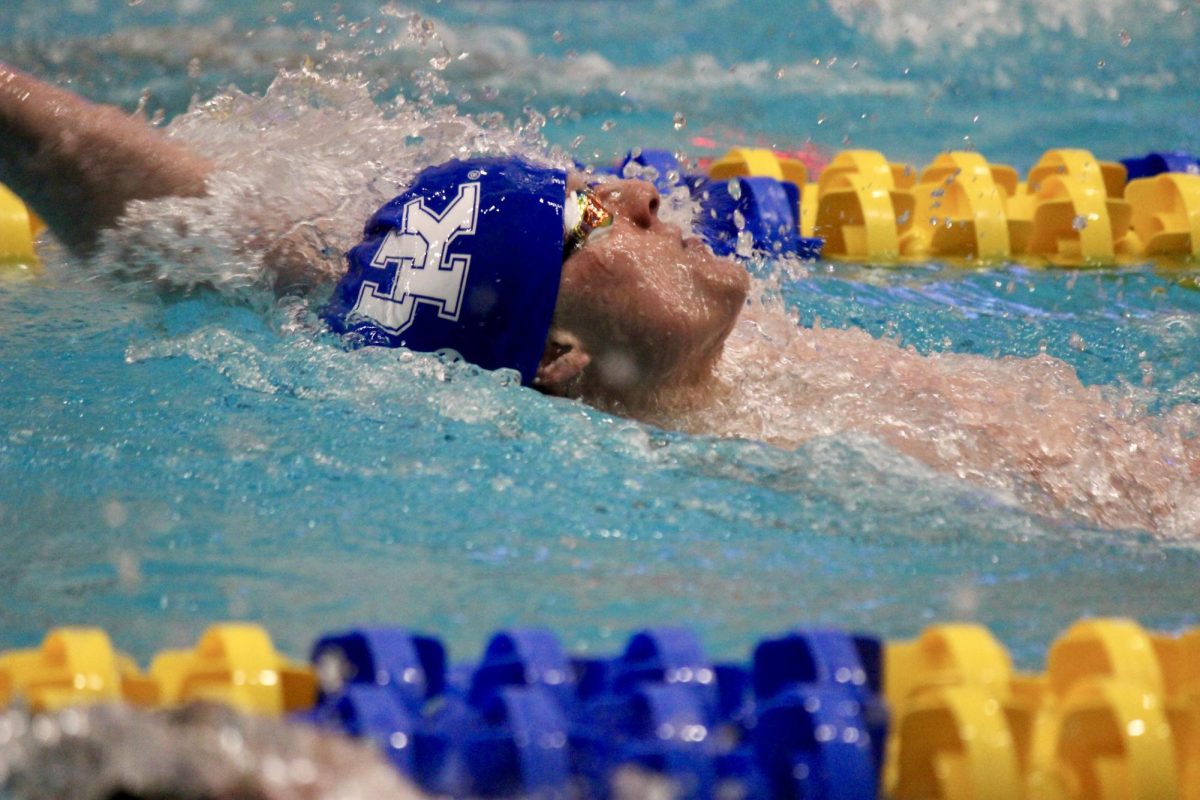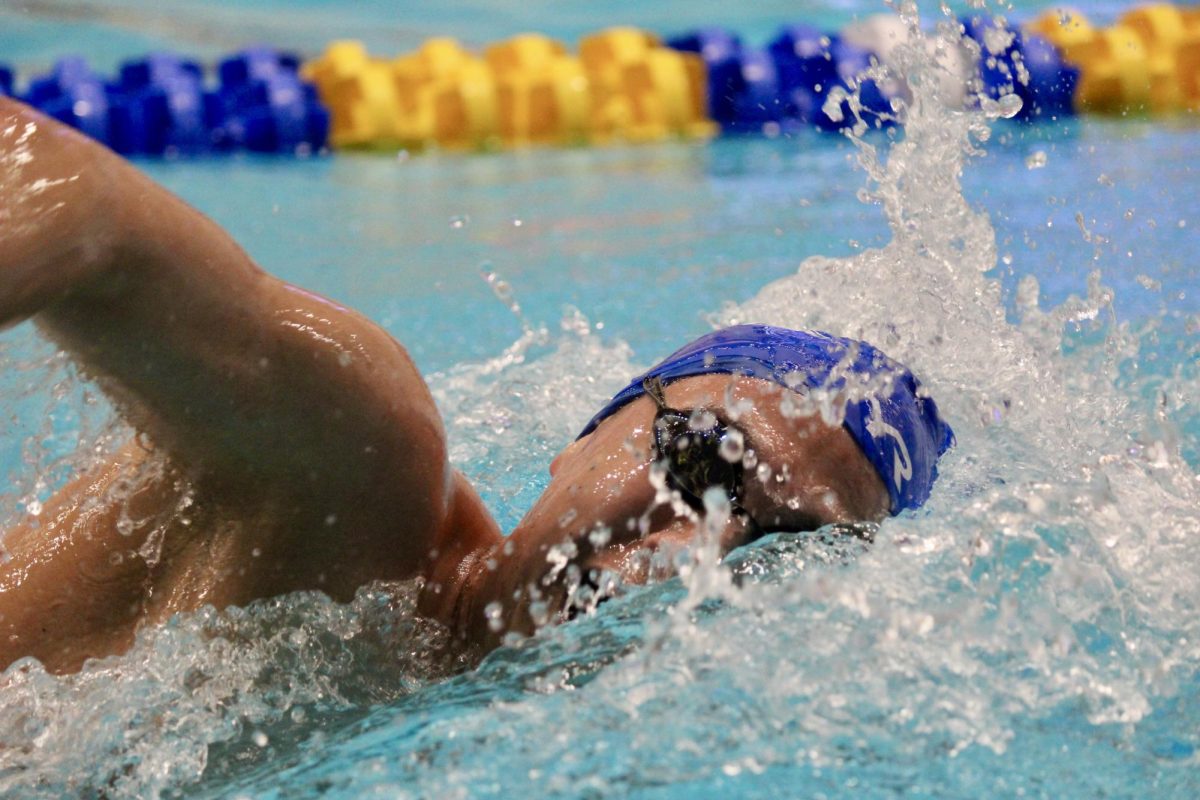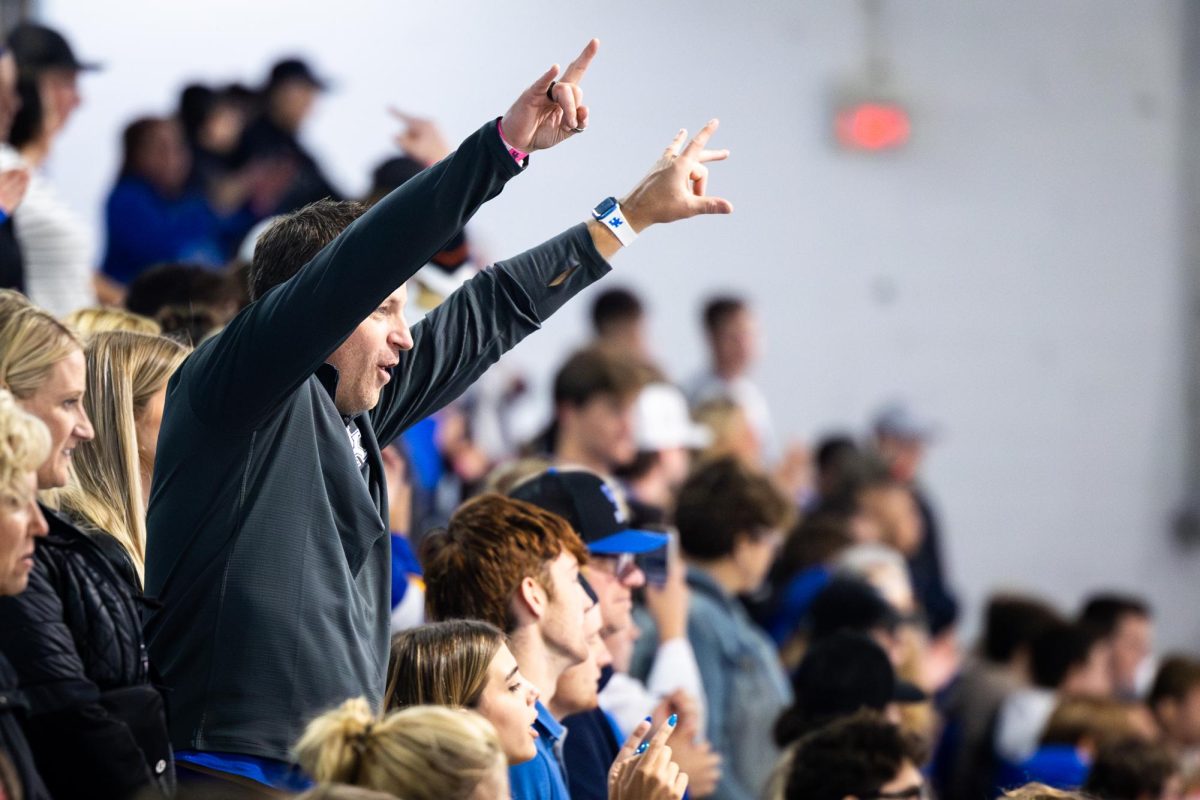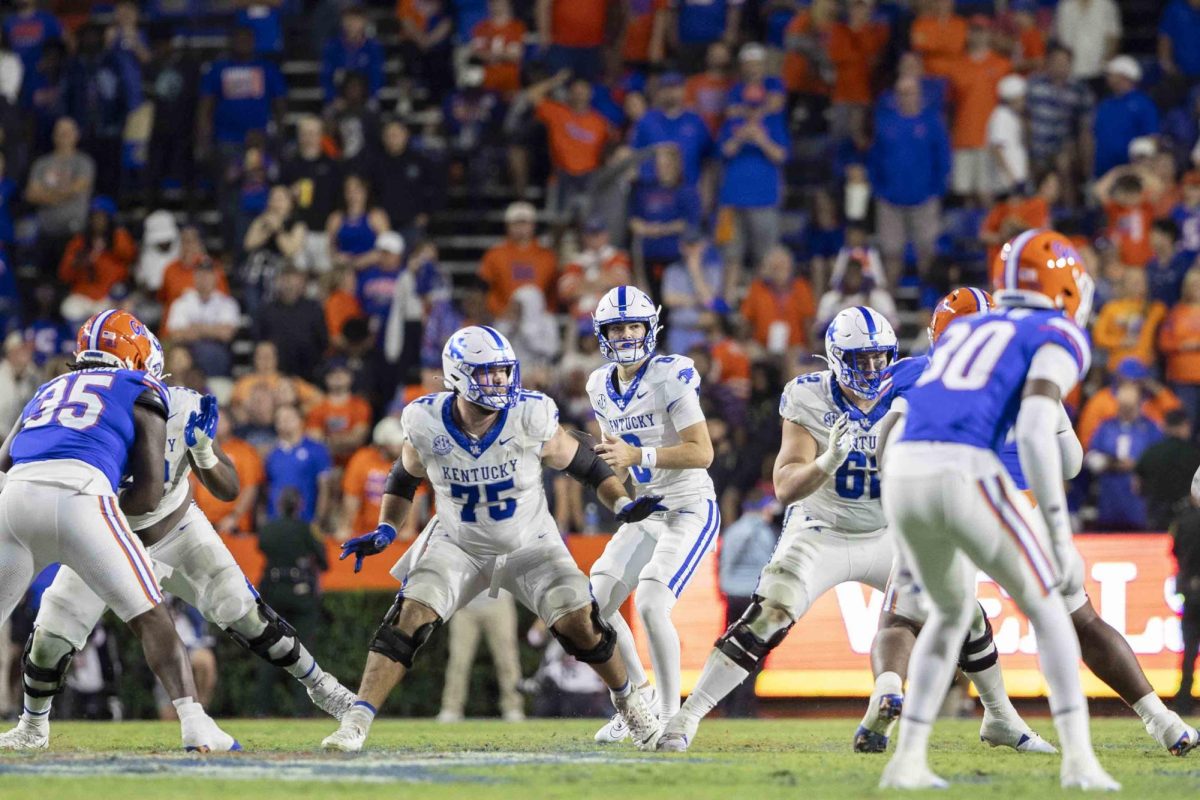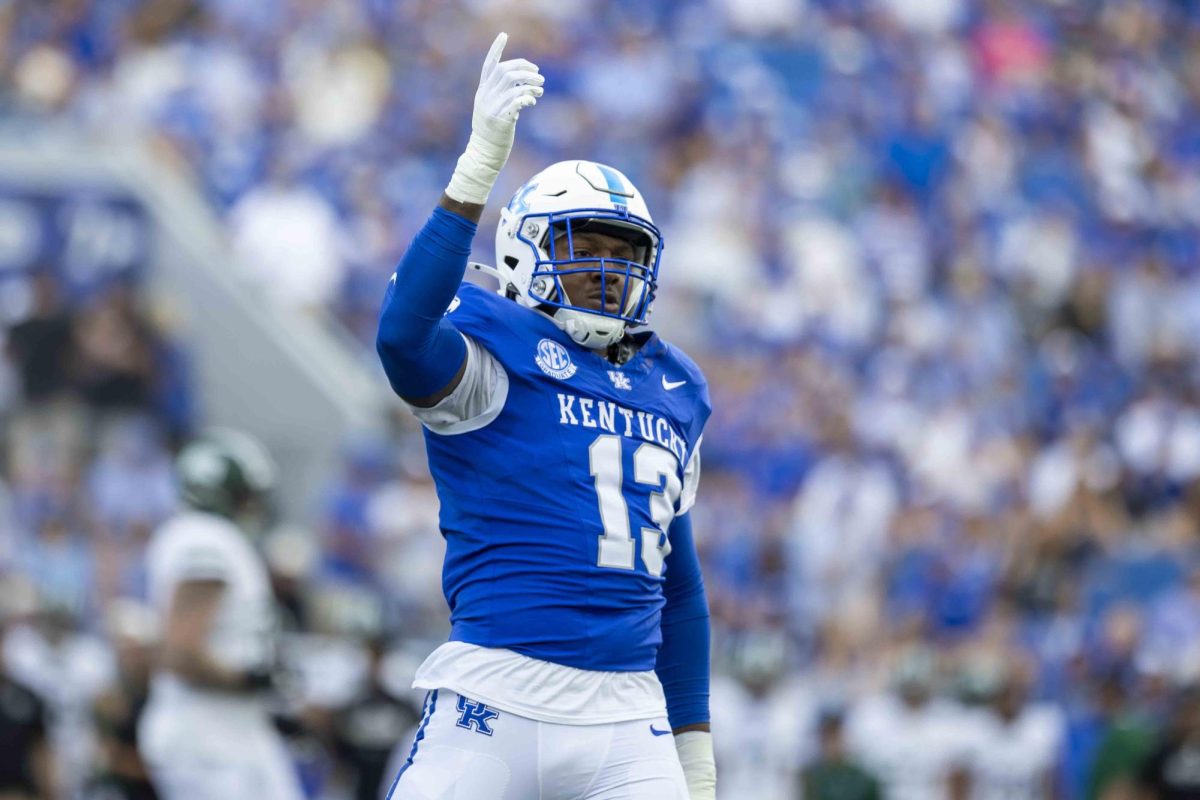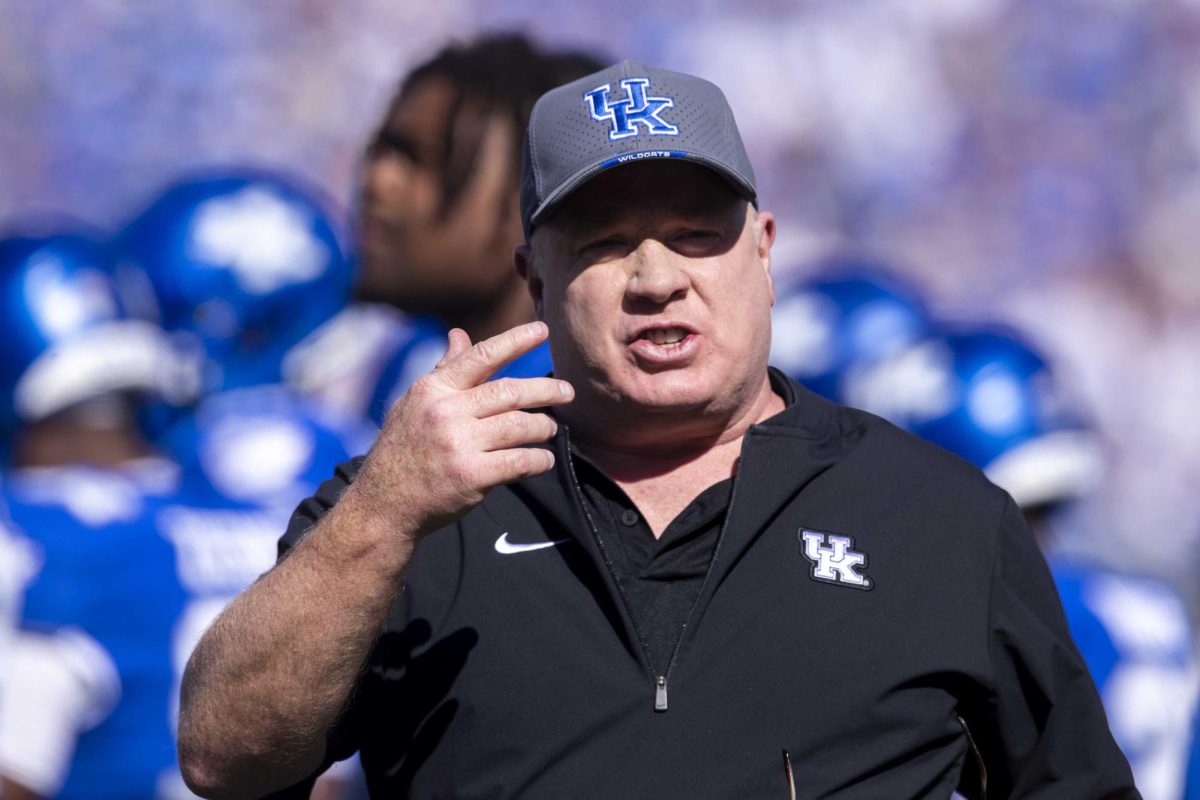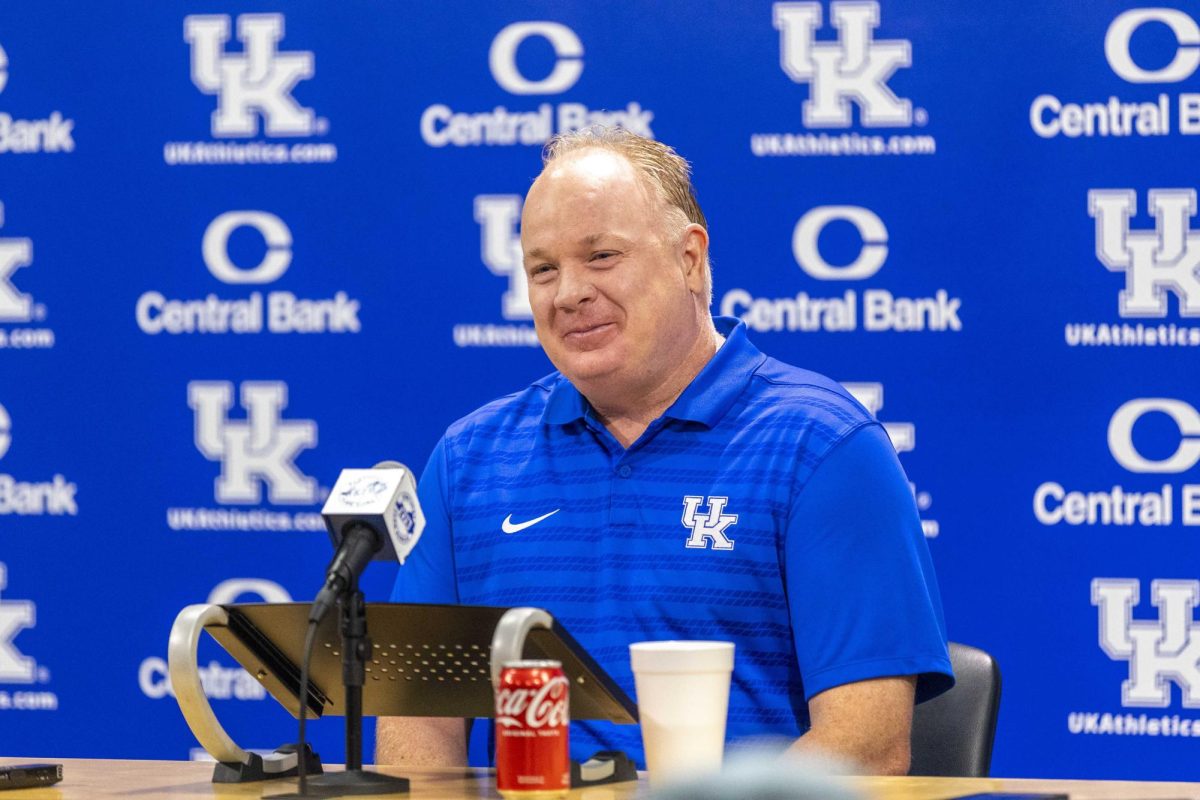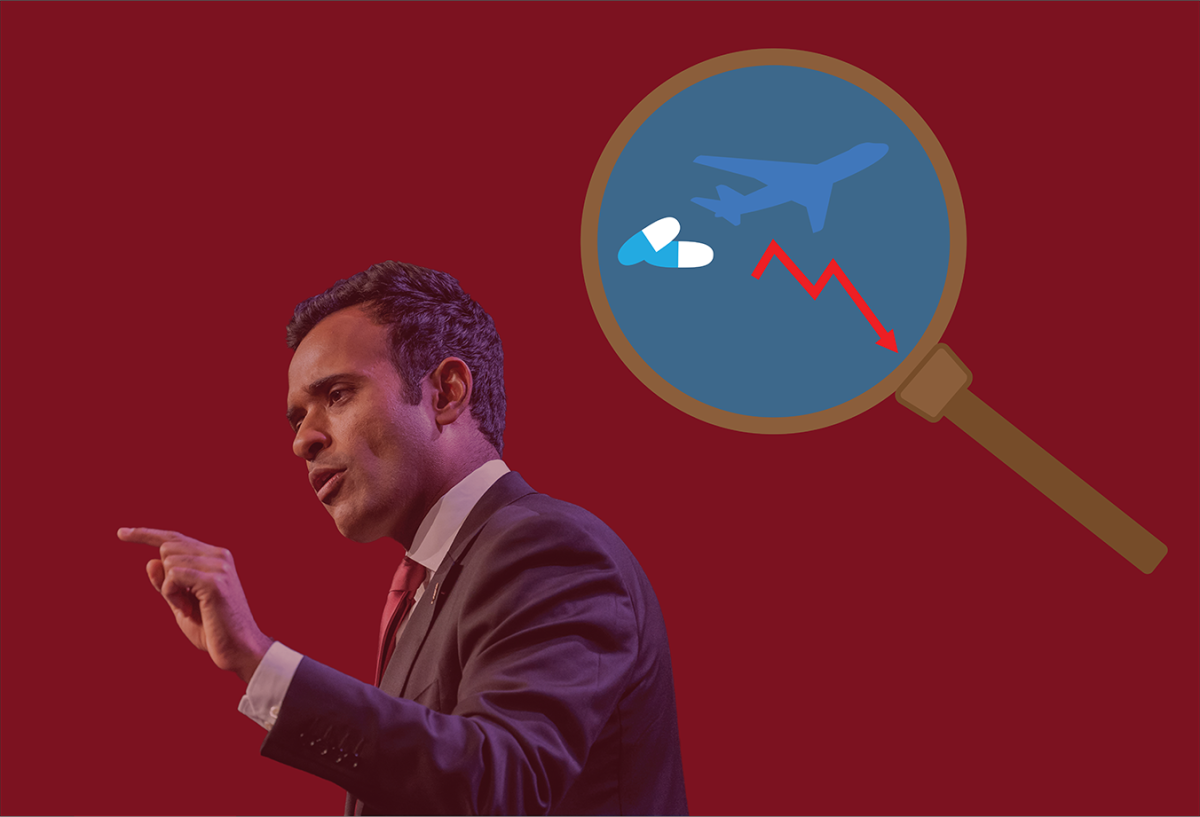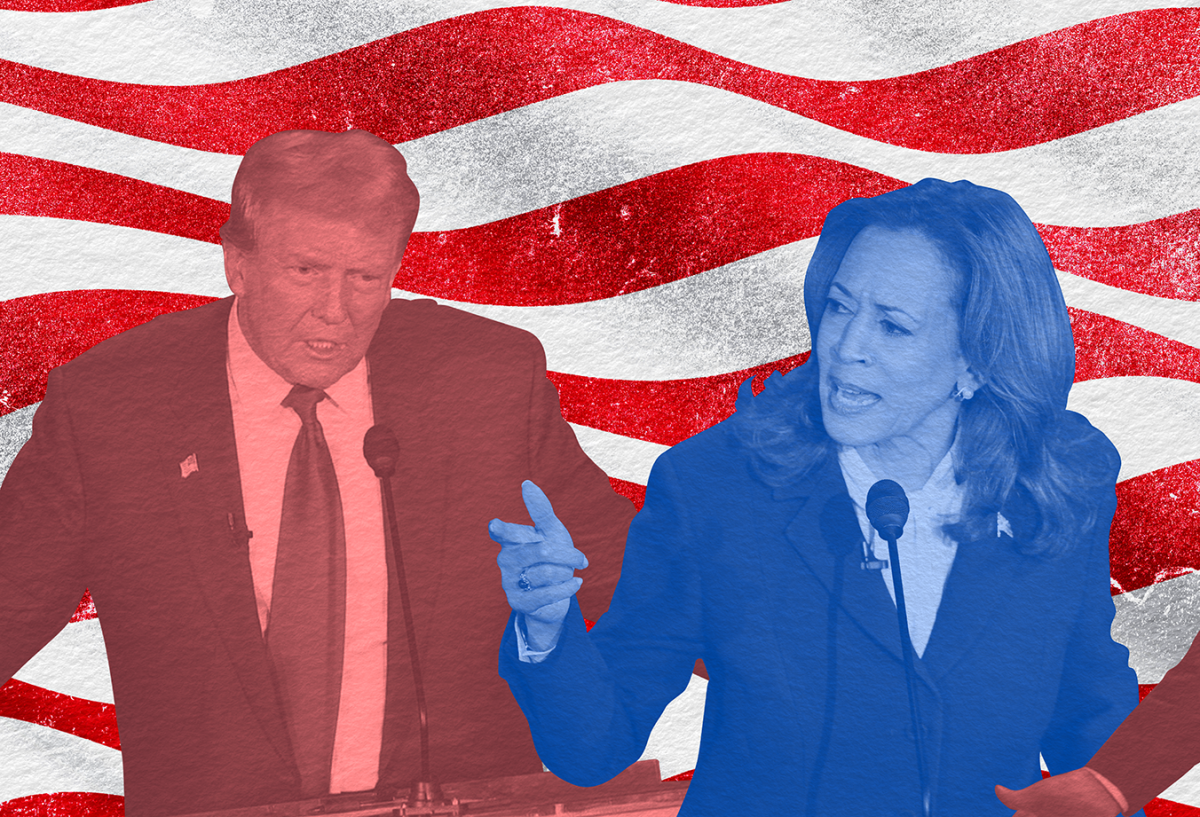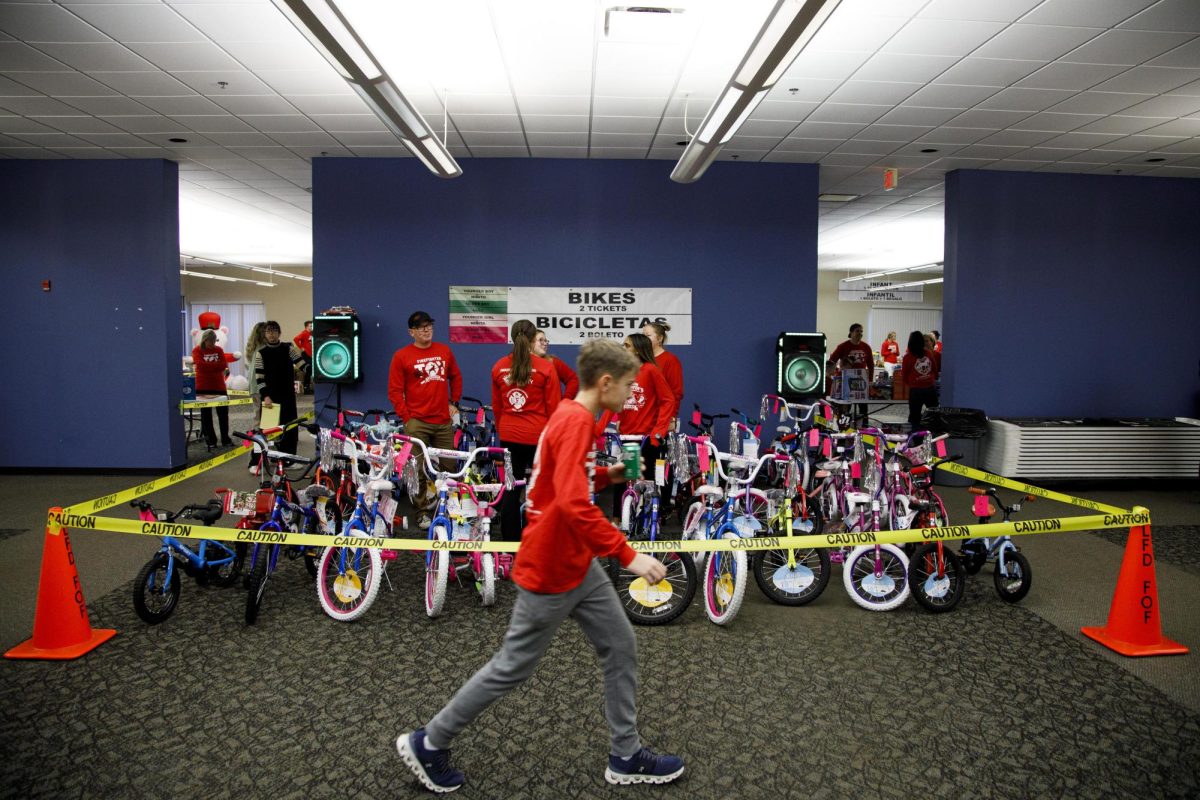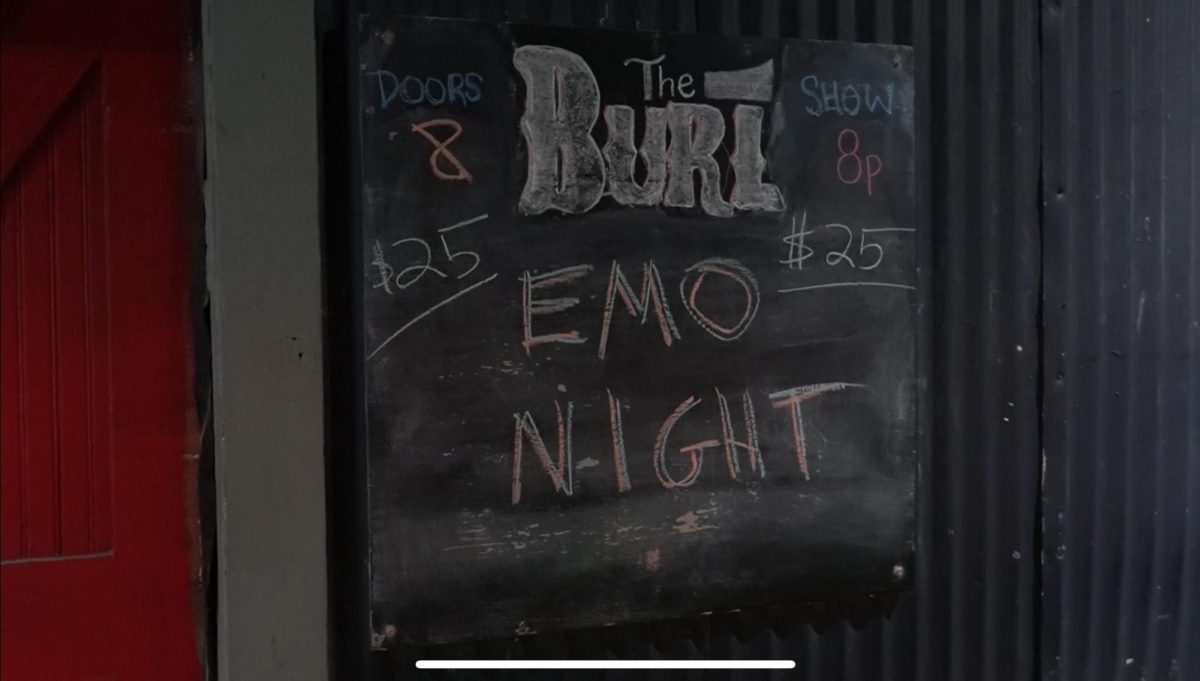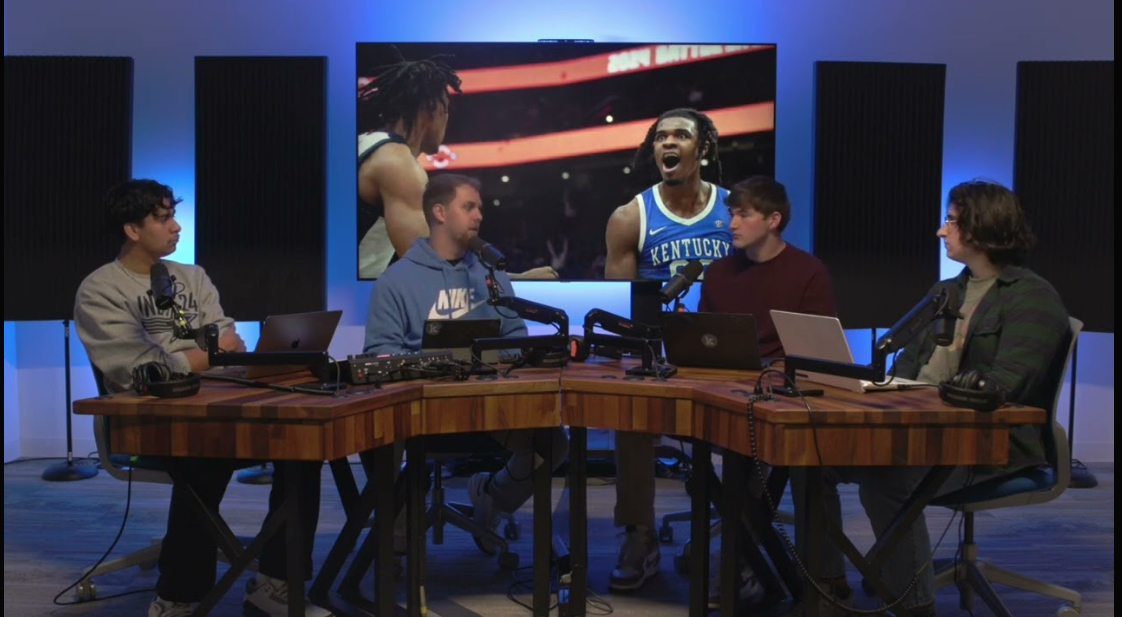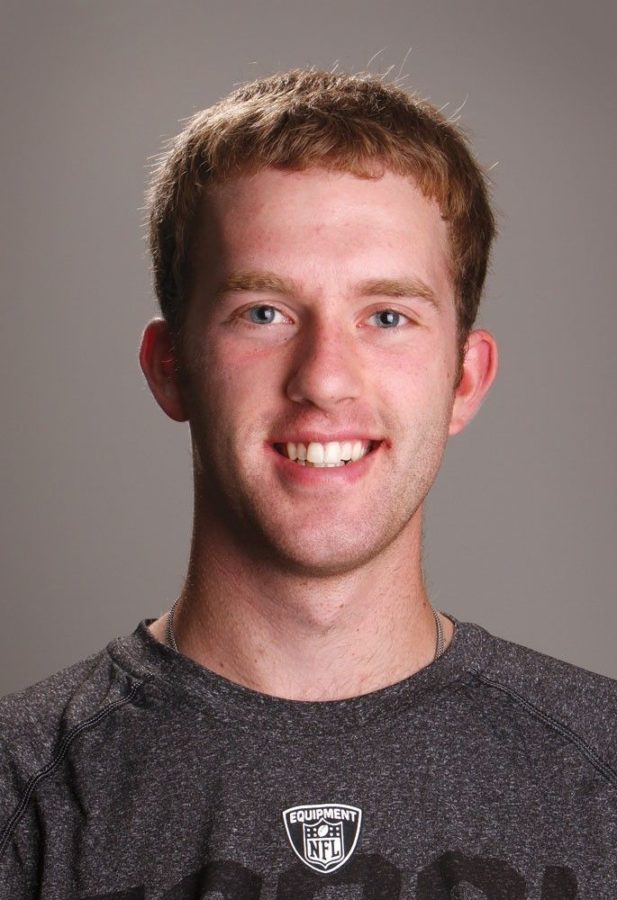Calipari must recruit mental toughness, not just ability
April 3, 2013
By David Schuh | @DSchuhKernel
John Calipari is the villain. In the fairy tale version of modern college basketball, he is the nagging antagonist that creeps under everyone’s skin.
It’s not just because he wins. It’s not just because he’s brash. It lies in his philosophy: His rotational recruiting pattern that infuriates the conservative members of the sport’s admirers.
The national perception of the one-and-done philosophy in college basketball is largely negative. It is viewed as a black eye on a sport that most will say has seen a dramatic fall in quality in the last 20 years. Calipari didn’t invent it and says he doesn’t like it. He is simply its most fervent disciple.
His 15 NBA draft picks in three seasons in Lexington are both his greatest talking point and his critics’ strongest judgment.
This season, those critics were in full “I told you so” mode. Even after a national championship, a season ending in an upset loss in the first round of the NIT was proof to some that the one-and-done philosophy is a mockery.
They said last year’s team was once-in-a-generation and Calipari got lucky, that he can’t consistently win with a team comprised primarily of 18-year-old freshmen.
I don’t agree with that — at least, not entirely.
The 2012 National Championship team was great, perhaps one of the greatest in UK history. And with top recruiting classes flocking to Lexington every season, that team can be replicated — it may next season.
There is an inconsistency, though, that lies in the process. Calipari’s methods are risky, but he’s good at what he does. He has all but perfected the system an NBA rule has forced him to utilize. However, he couldn’t avoid what has happened in 2013.
The one-and-done system is cyclical. It can produce fabulously gifted teams capable of steamrolling amateur competition. It can also breed talented, athletic teams mired in their lofty expectations. This year’s team, of course, was the very definition of the latter.
The expectations were reflected by its No. 3 preseason ranking. UK was the reigning national champion, what’s to say it can’t just happen again?
That’s the trap.
Talent can win games. Experience and talent can take it a little further. But it takes something extra, a certain mental toughness that this year’s Cats never acquired. They were met with adversity and, more often than not, couldn’t respond the way anyone expected them to.
And, most importantly, they had nobody to teach them. There was no Darius Miller, no Josh Harrellson and no Patrick Patterson.
These freshmen were talented enough for the standard that has been set at UK the past five years. They never brought the mental fortitude to showcase it. Calipari publicly feared that routinely for five months.
The system is cyclical, but it skips years. The overhaul of five first-round NBA draft picks after the 2012 championship was a difficult thing to replace. These Cats didn’t.
The 2010-11 season began in a similar way. That team entered the season with slightly lowered expectations after Calipari’s first freshman crop at UK fled for their NBA dreams.
But they had upper-classmen leadership and a gritty group of freshmen that fought their way to a Final Four-caliber team by March.
Most UK fans have learned to have patience with Calipari’s teams. And that held true for several months until this team’s inconsistency slowly morphed into its identity.
He said he tried everything to turn the season around, and there’s no reason to believe he didn’t. But when all that doesn’t work, and you’ve got the second-best recruiting class in America, fans (especially at UK) will start pointing fingers.
The bottom line here is how this season can alter Calipari’s philosophy. He’s still going to recruit the best high school players in America. Frankly, he would be wrong not to if he is willing and able. How he evaluates them, however, should change.
After the Cats’ loss to Vanderbilt in the SEC Tournament, he said he wouldn’t change his approach. “I like that national title,” he said.
But it’s more complex than that. He has to strive for consistency. A national title contender is great, but an NCAA play-in game contender isn’t quite as illustrious.
“We’ve got to be more precise,” he said. “There’s a certain toughness that you’ve got to have in this thing … When you don’t have it — you know.”
It’s just one season, yes, but it can happen again. Just like the title run before it, a season like this can be replicated.
Calipari will recruit smarter. He will coach smarter. He’ll look deeper into his players than their physical attributes. He needs to find mental toughness, not just basketball potential.
The consistency of the one-and-done system depends on this change. In theory, a national championship banner will not come every year. But as we saw this season, a team capable of succeeding in the NCAA Tournament can miss it altogether. The possibility of either scenario is the nature of the cycle.
Calipari will always be a villain to the college basketball world. There’s no going back. But if there’s another trip to the NIT in his future, UK fans could start seeing him that way too.



